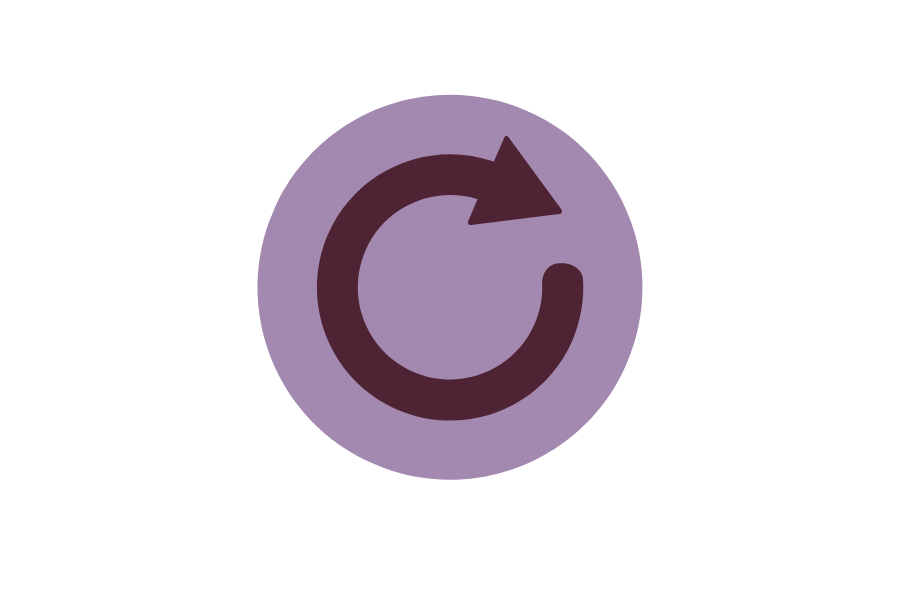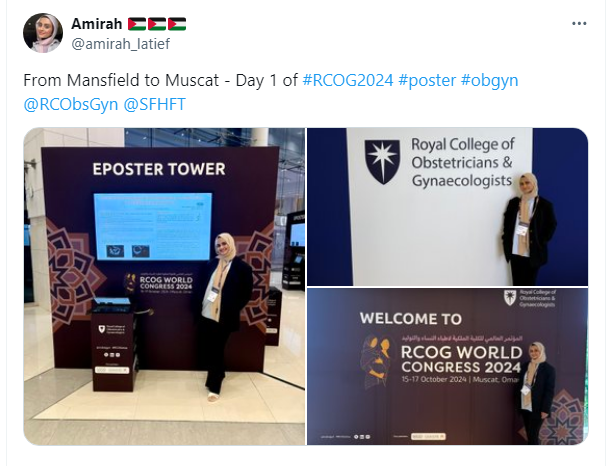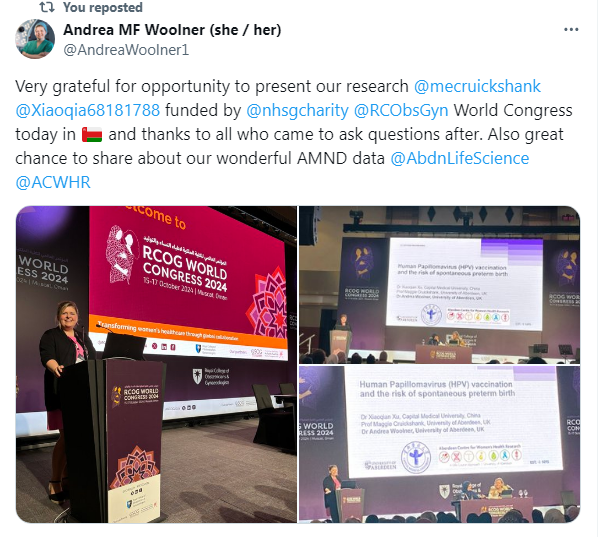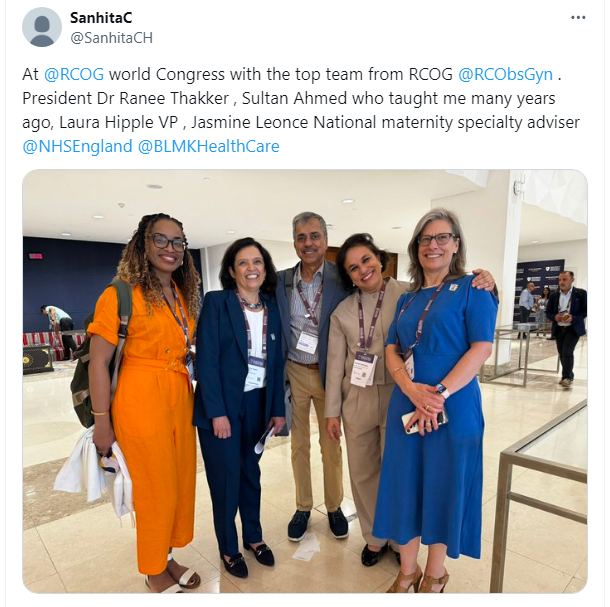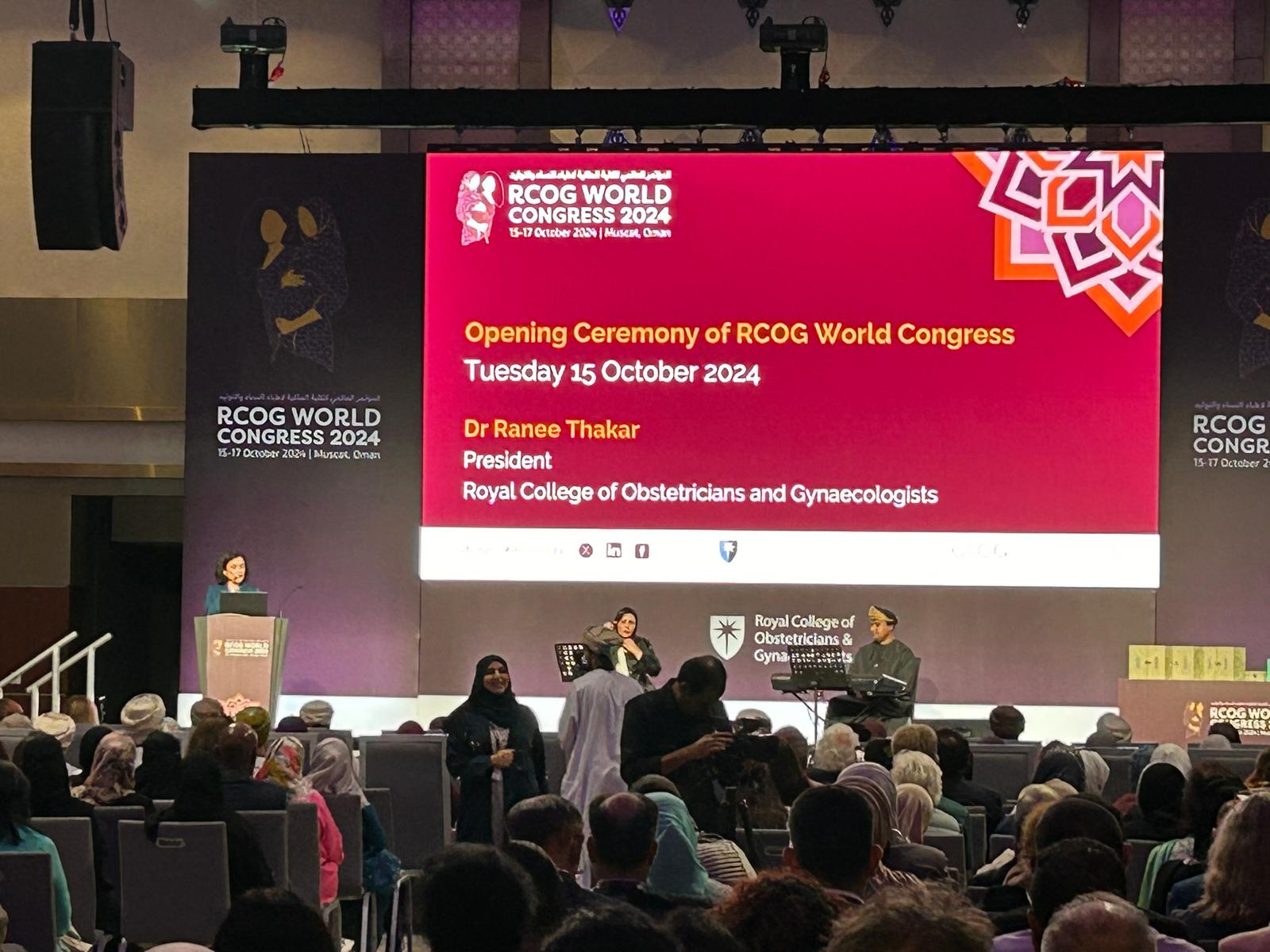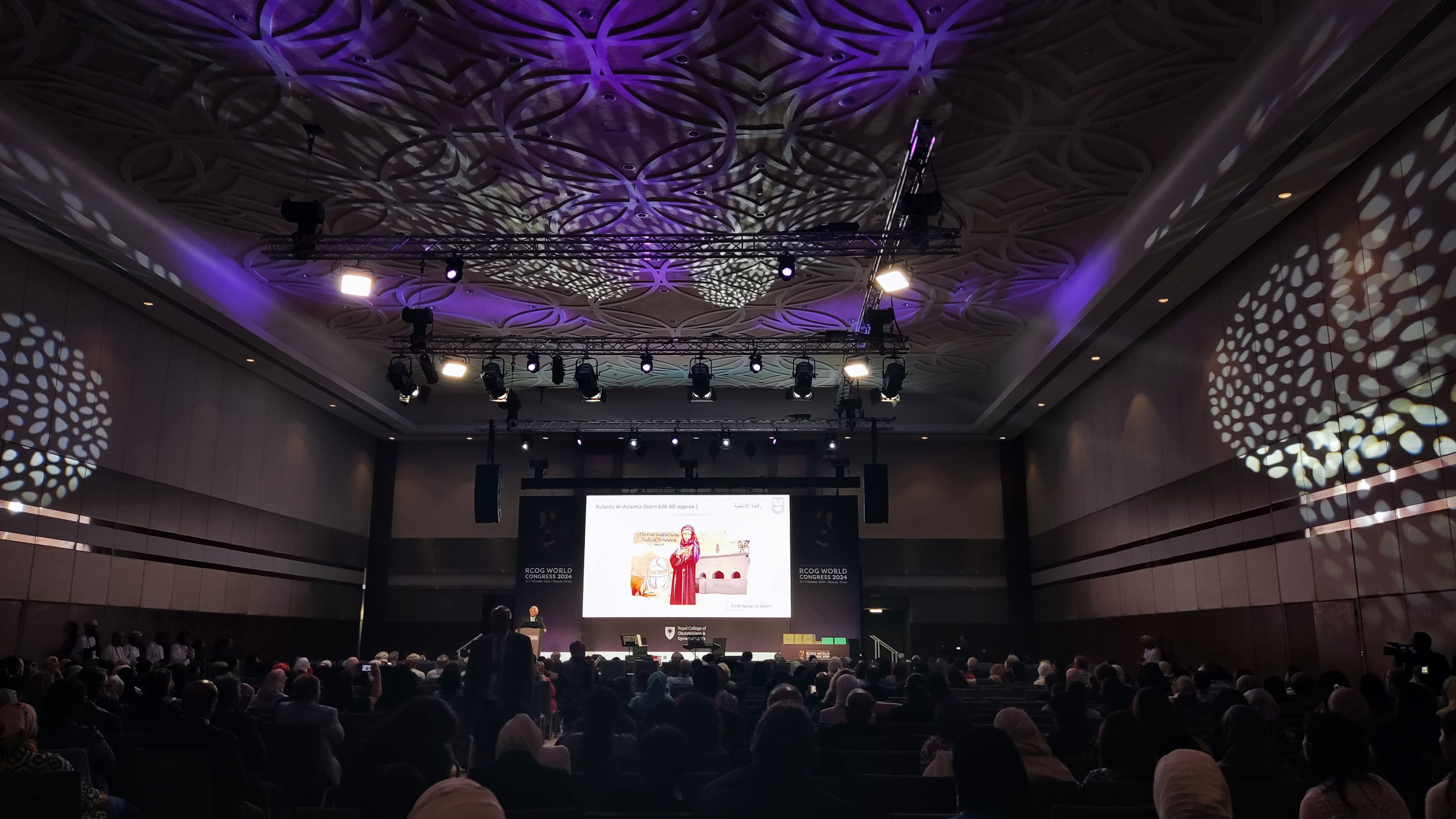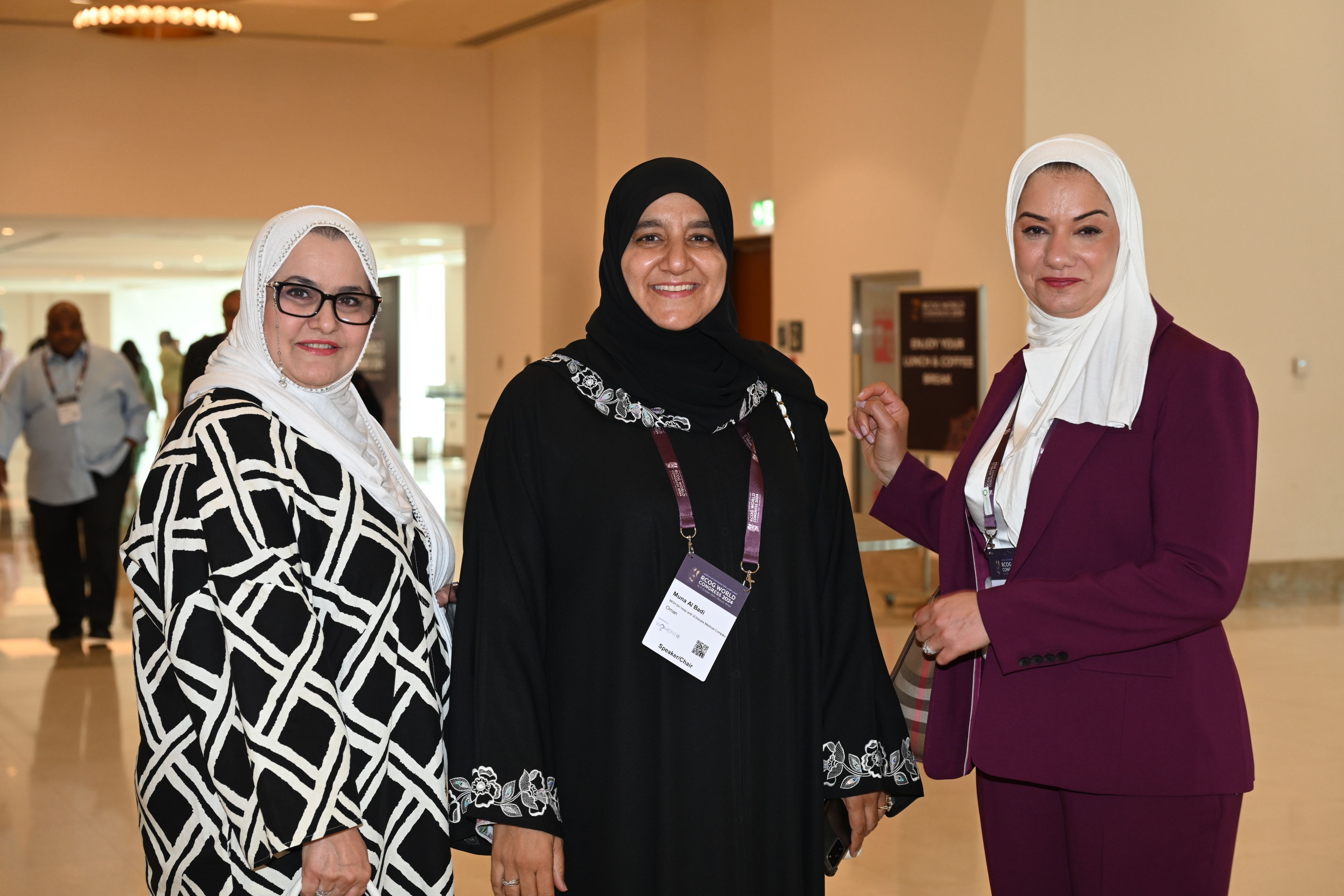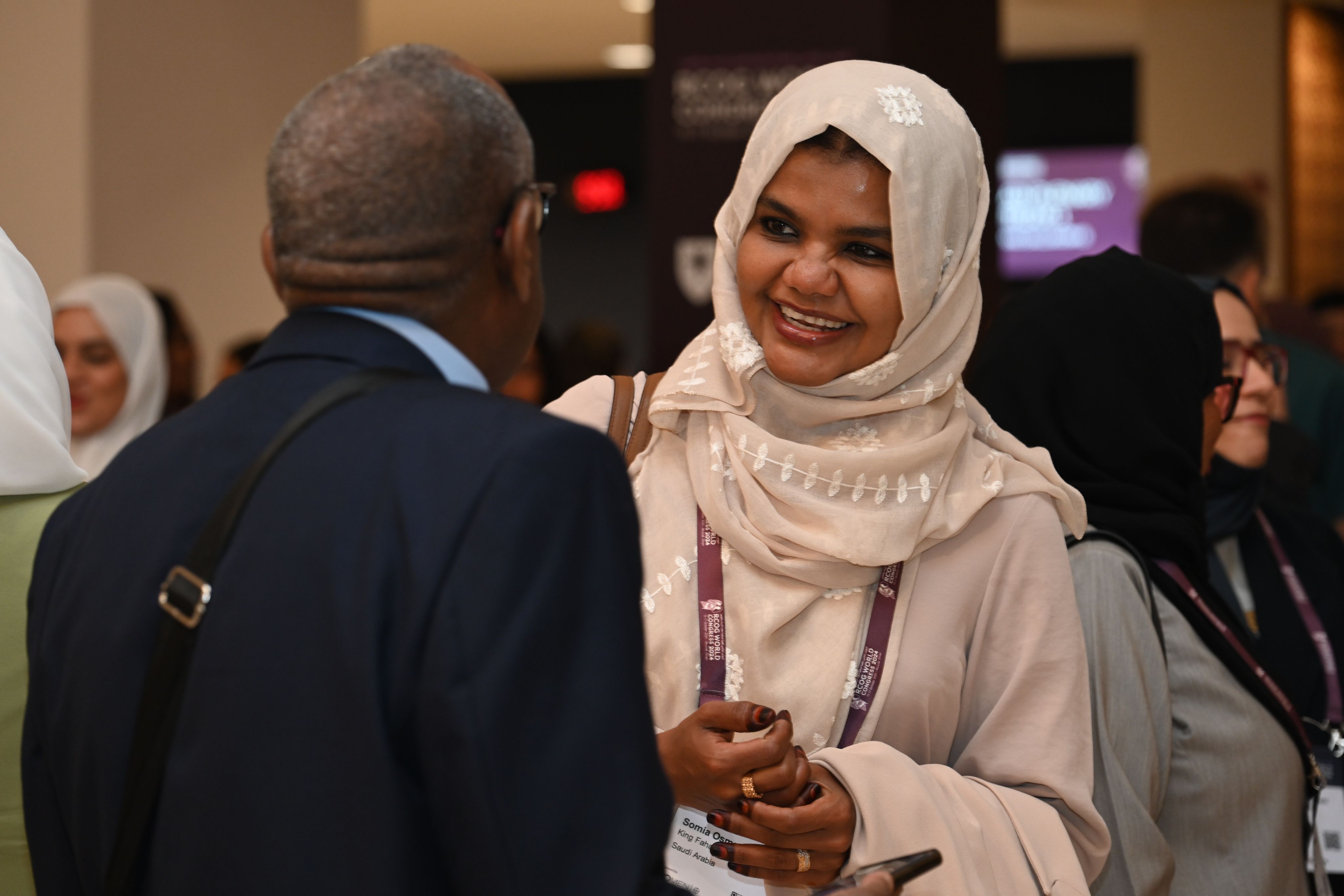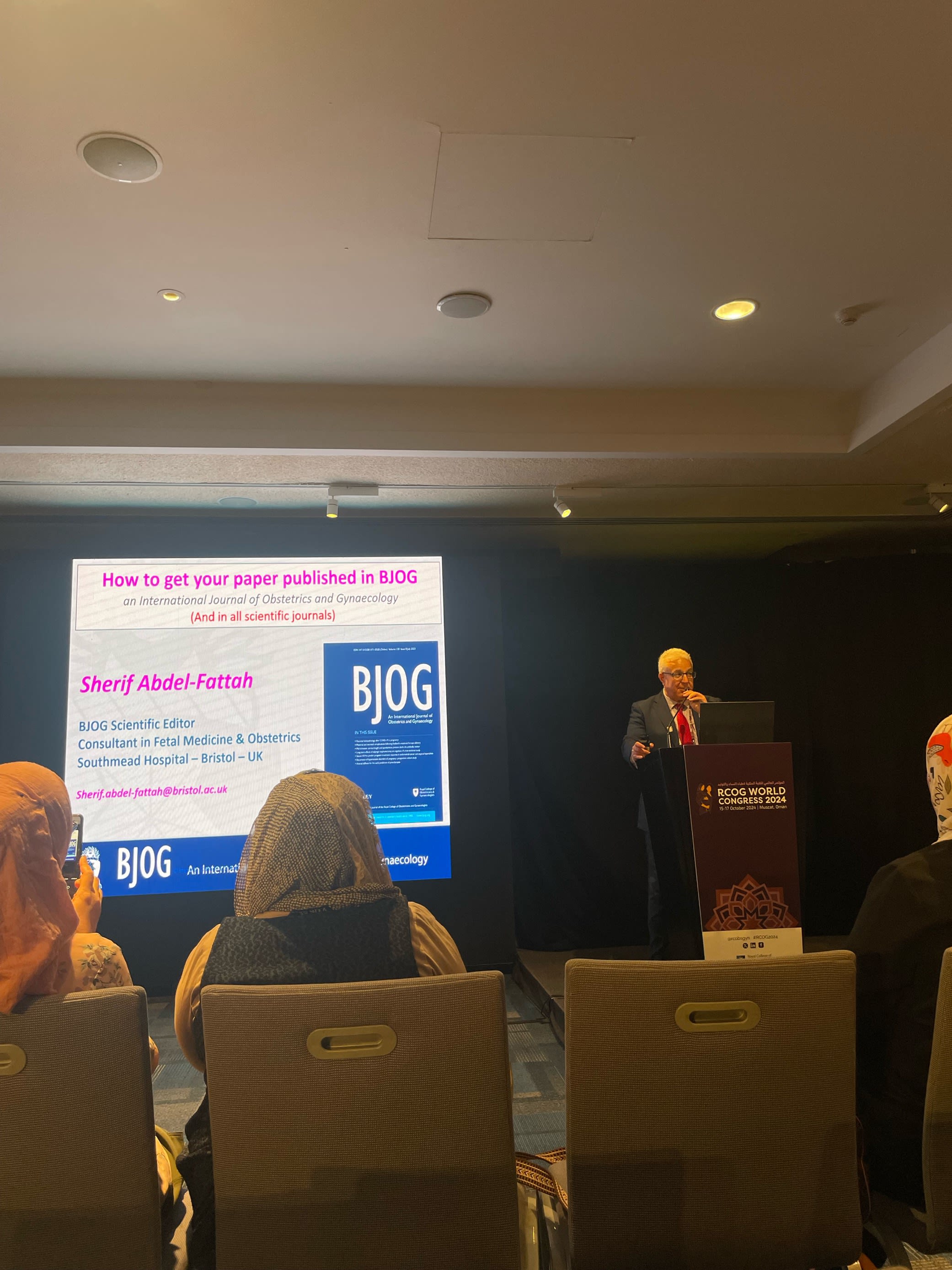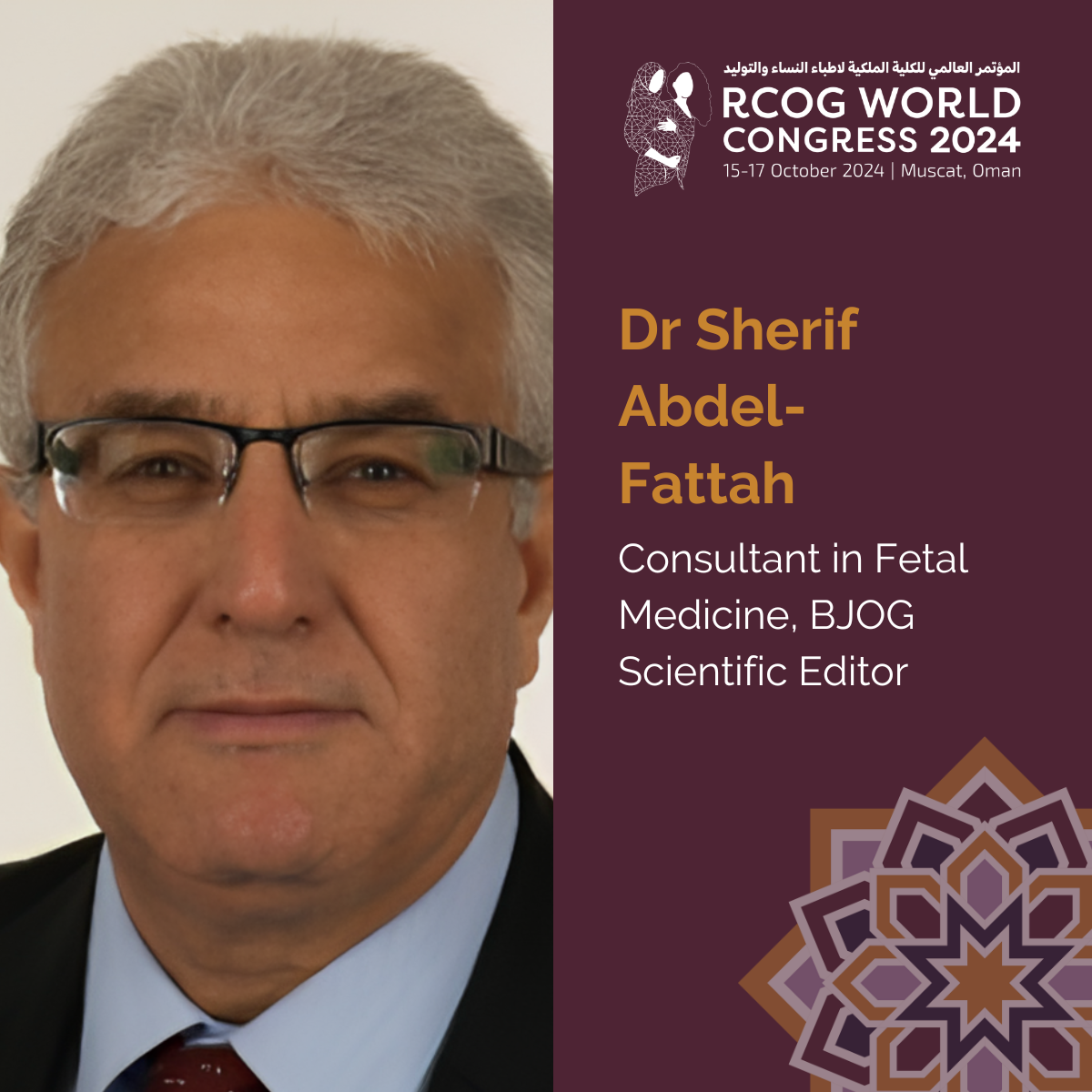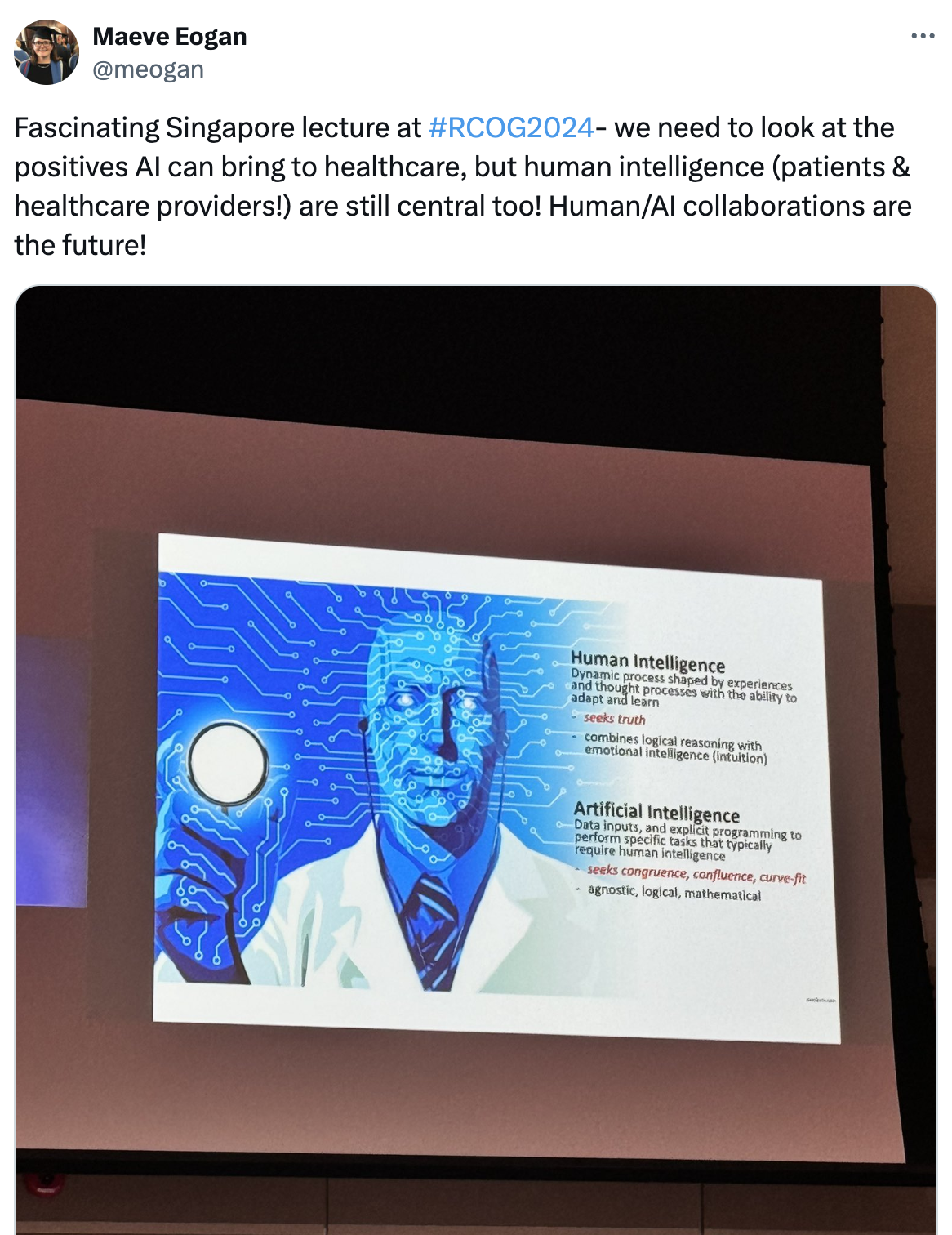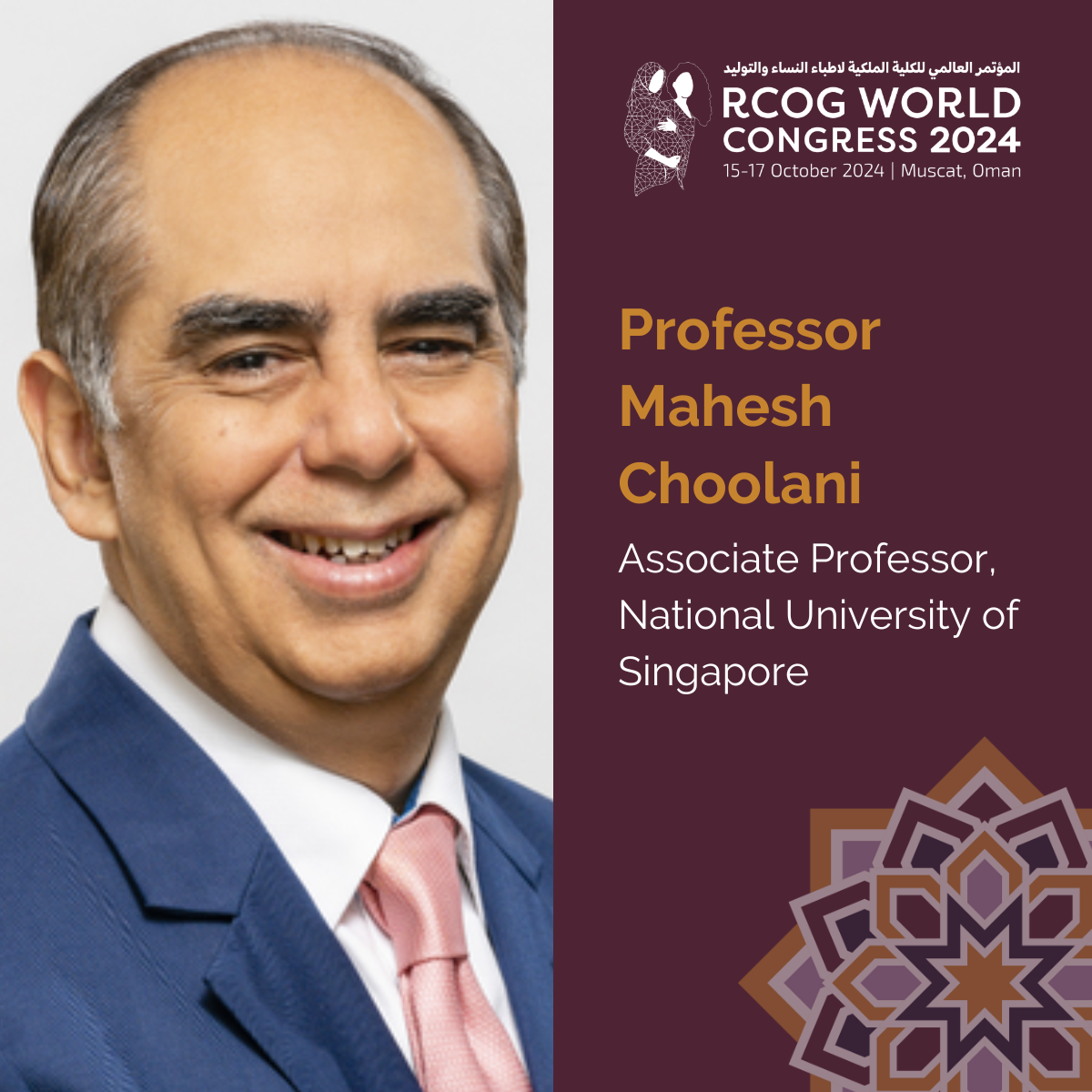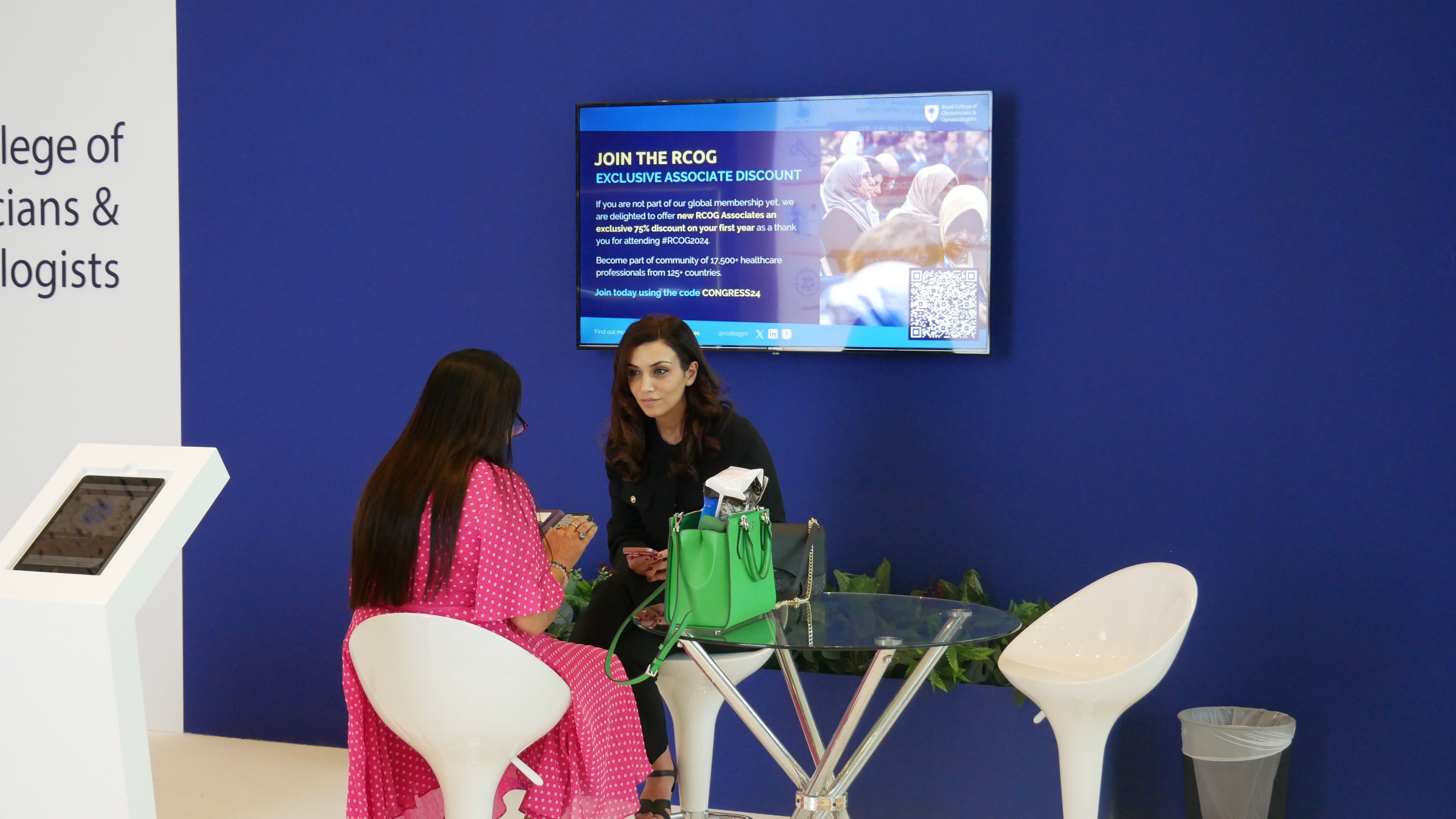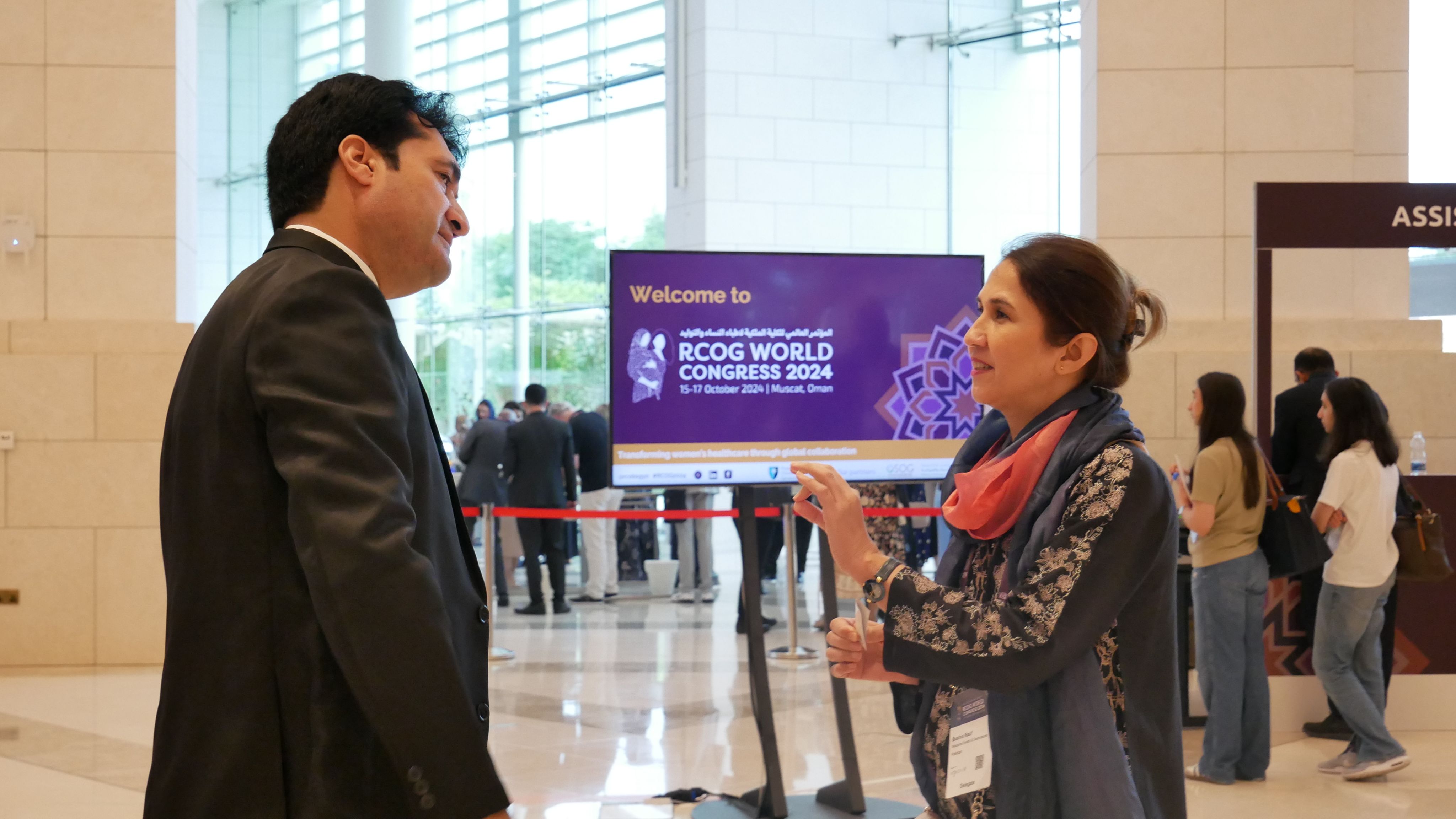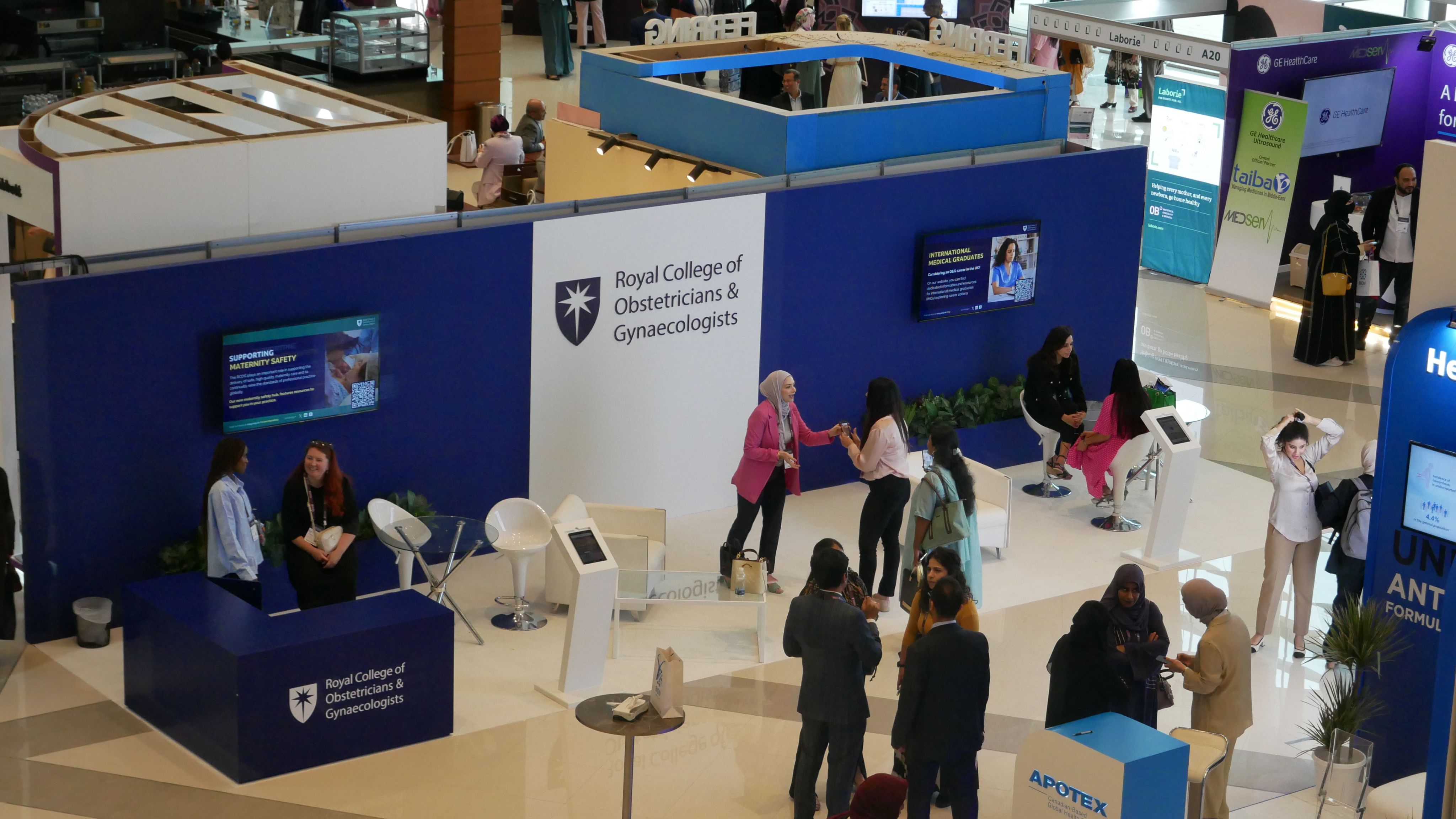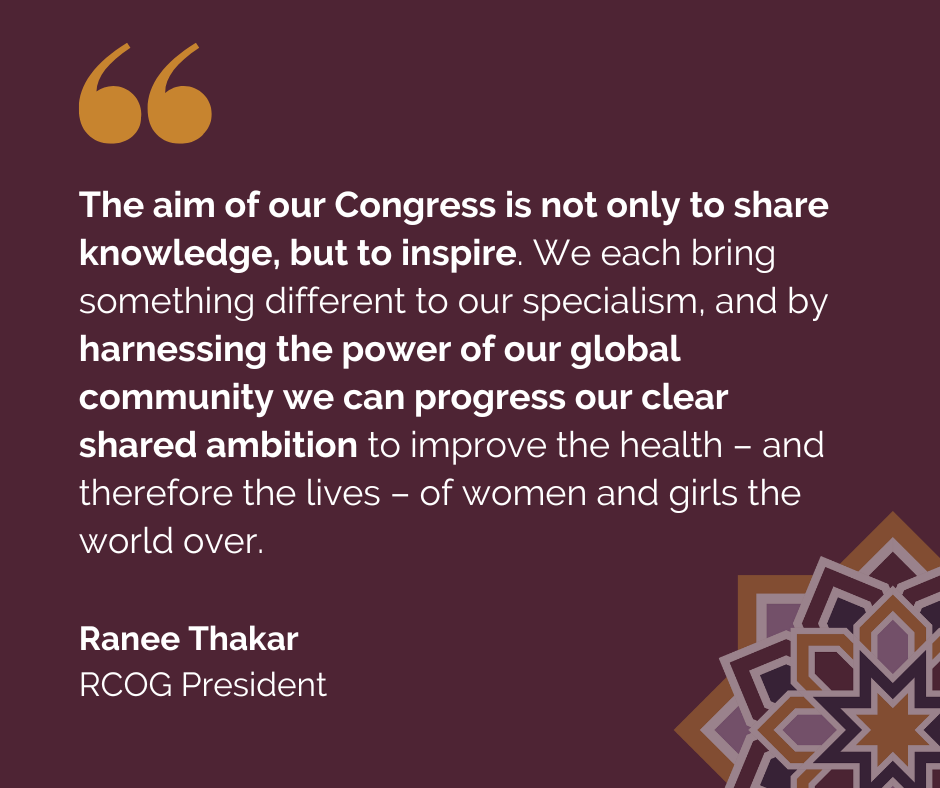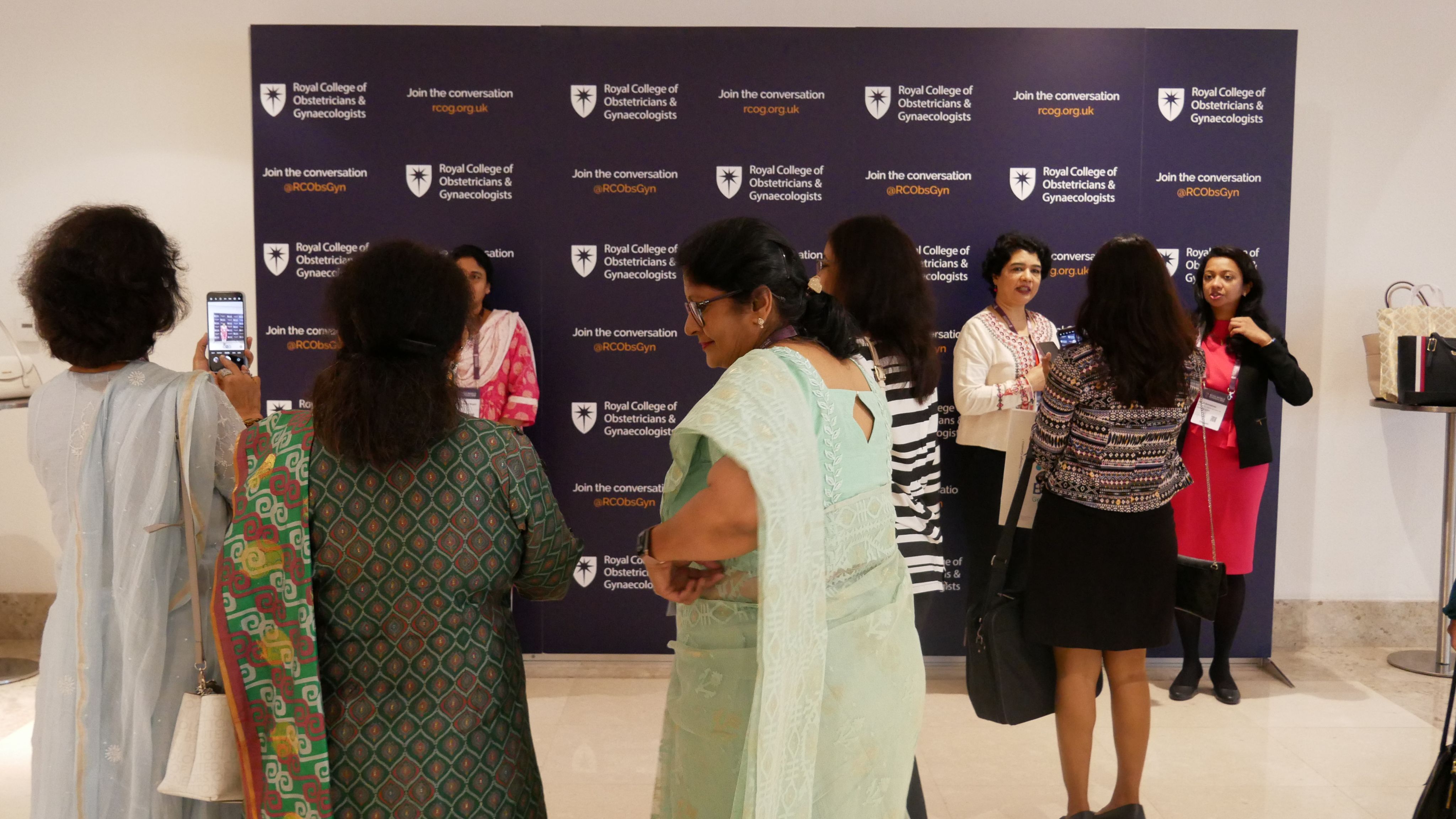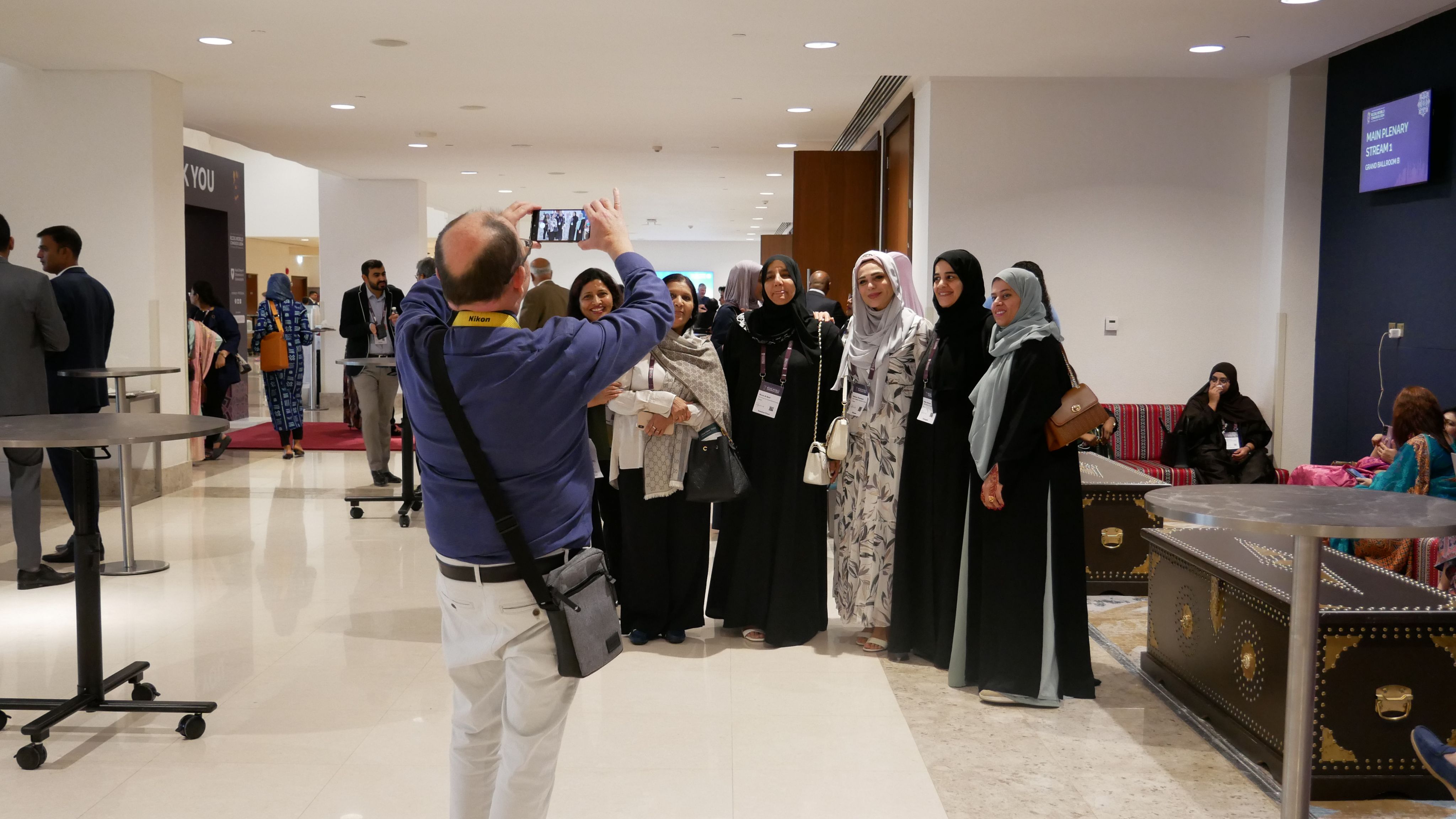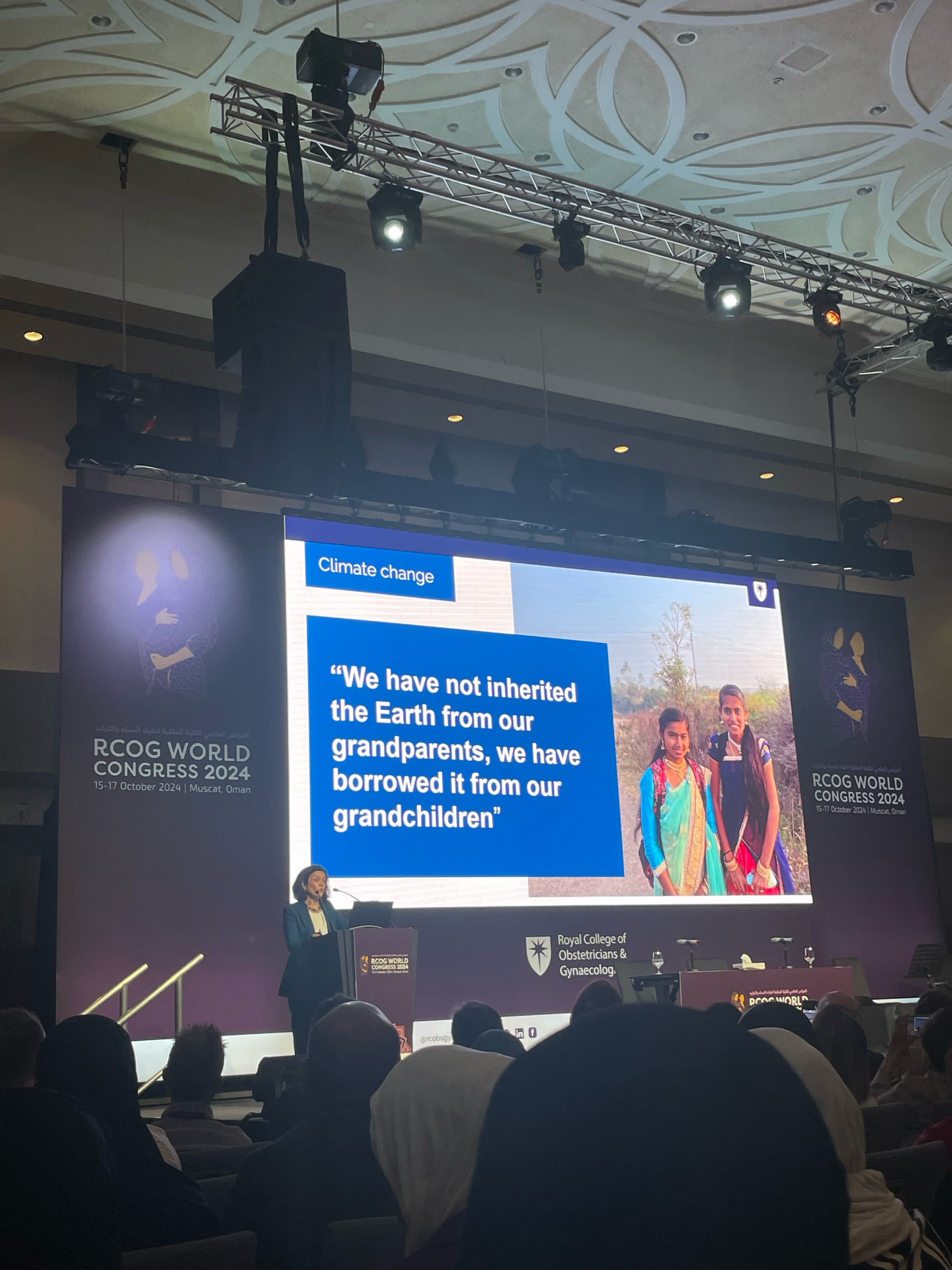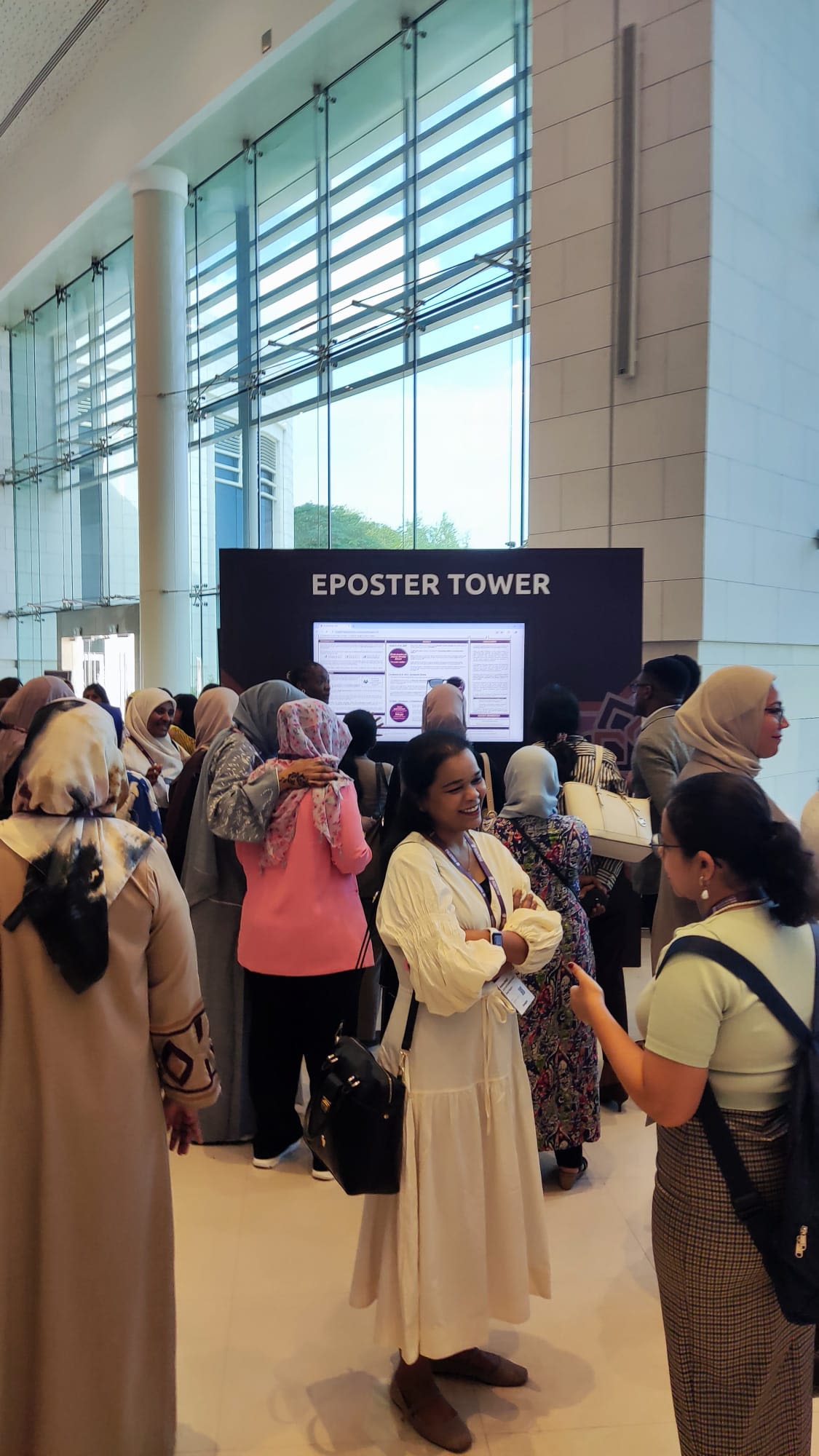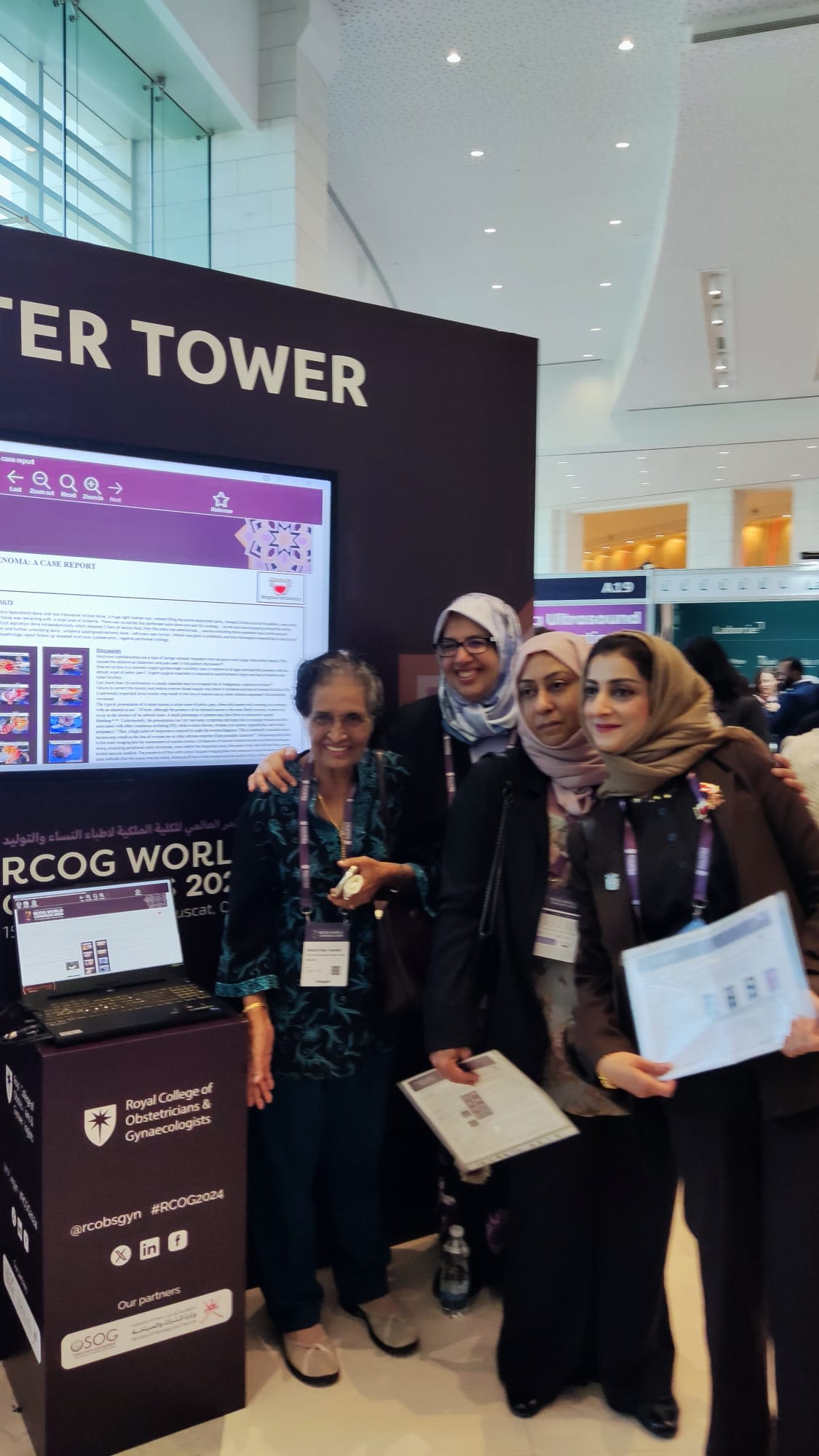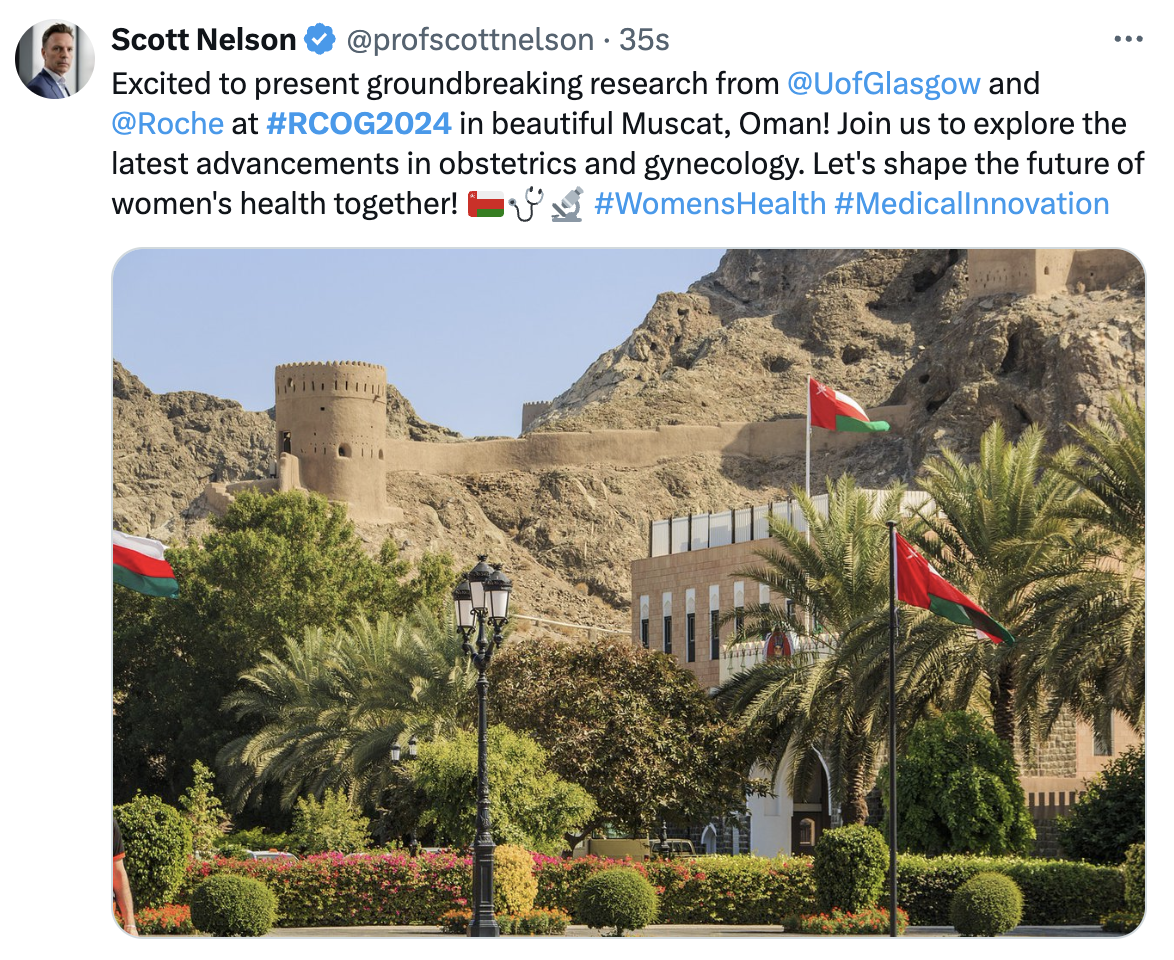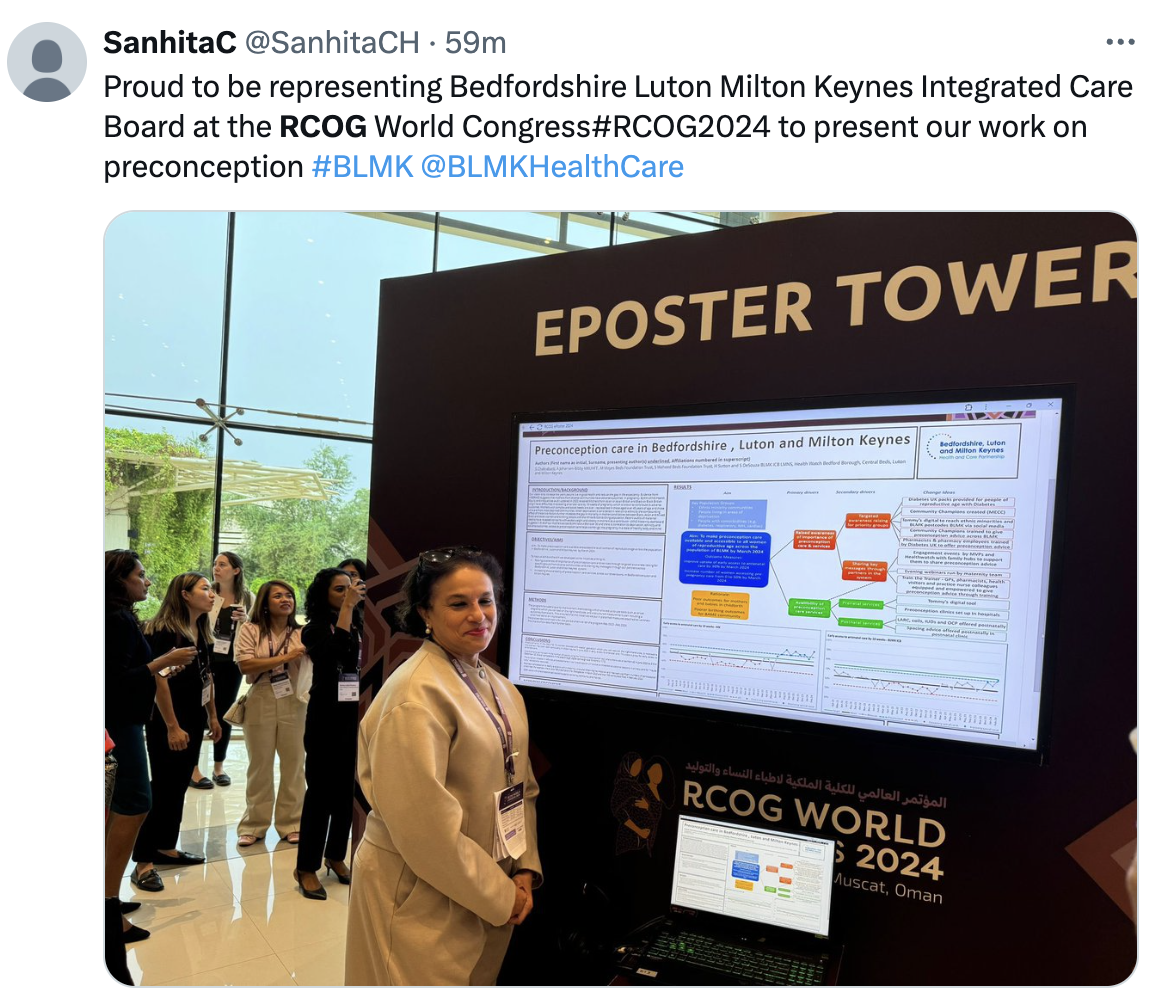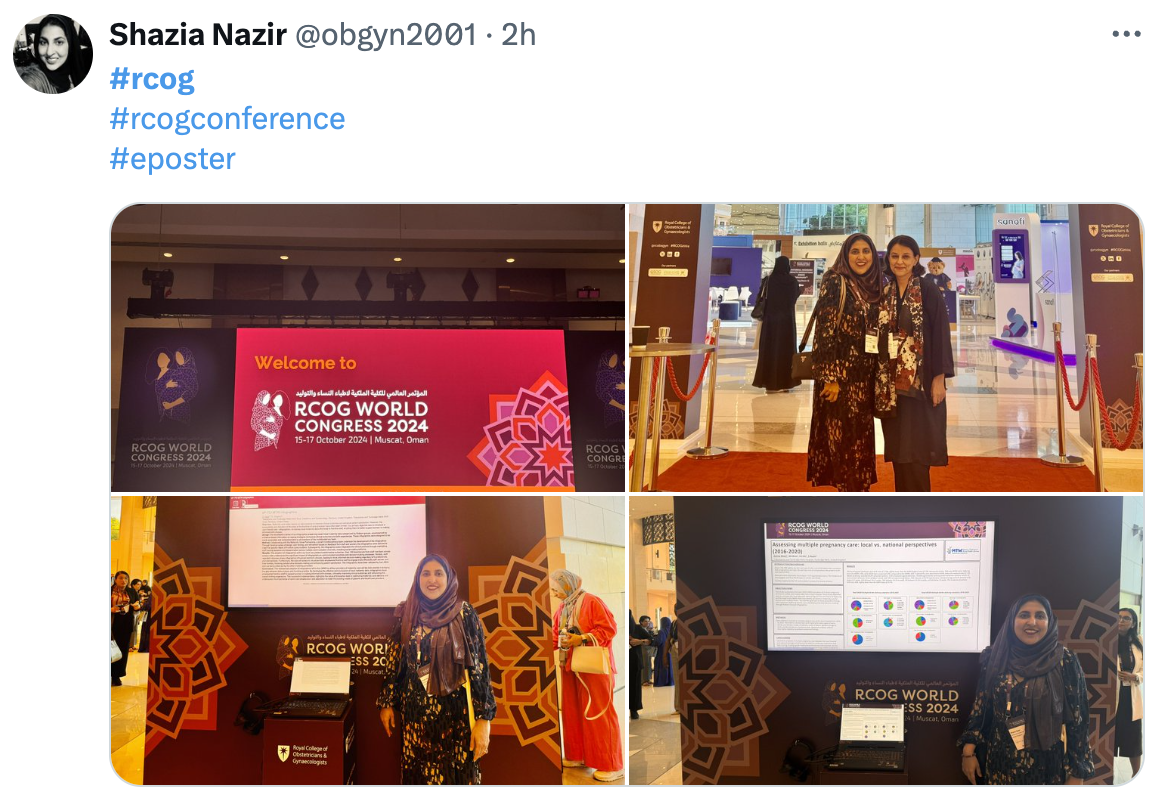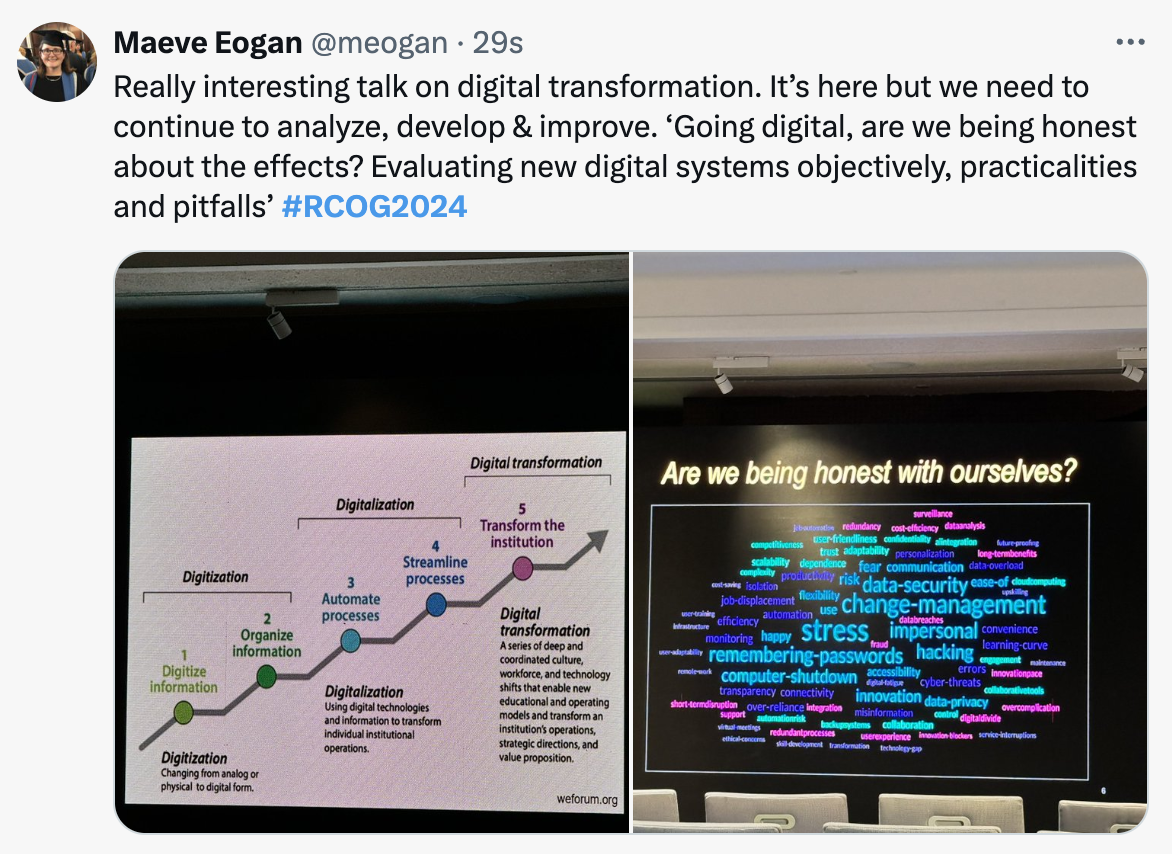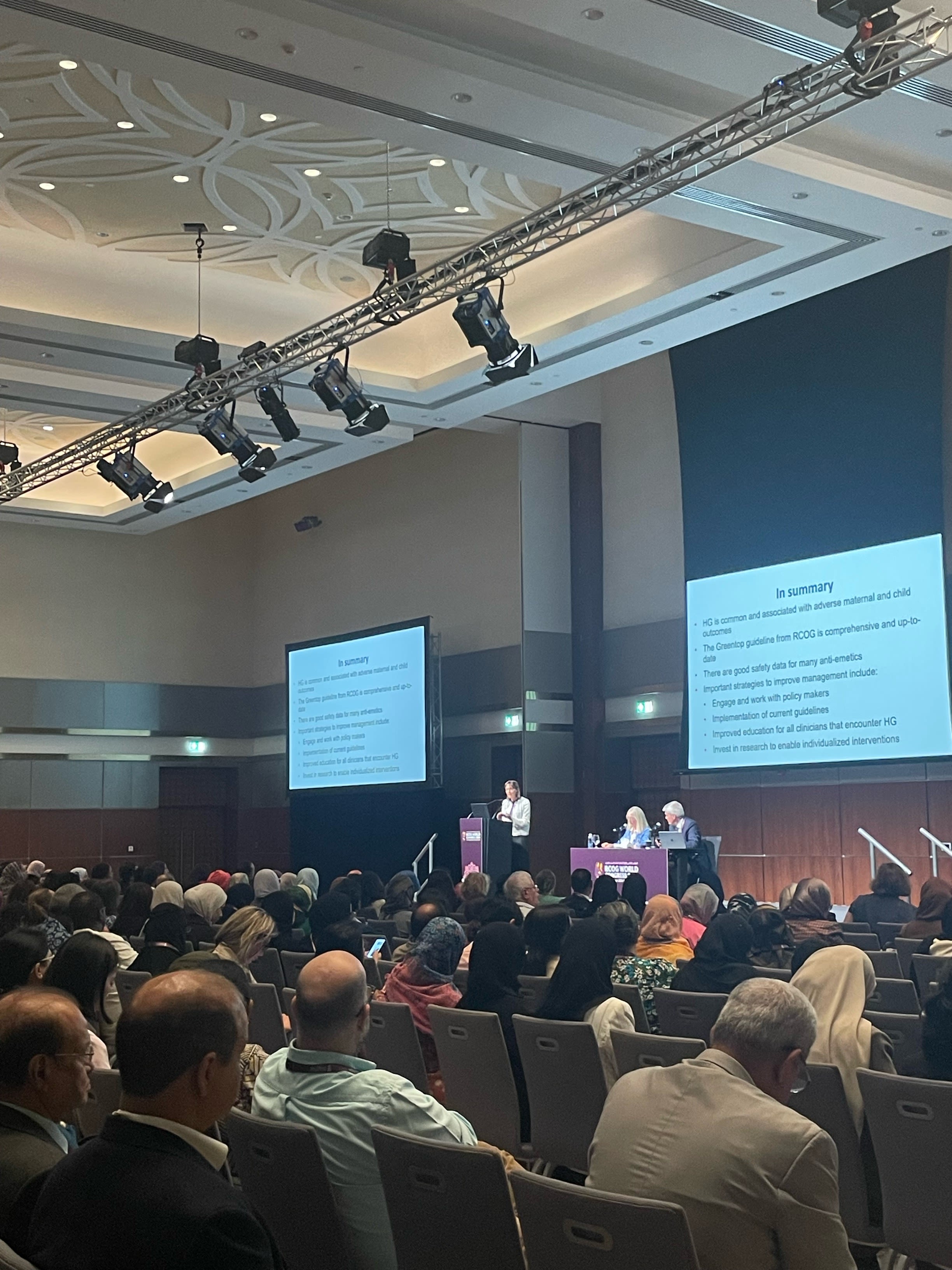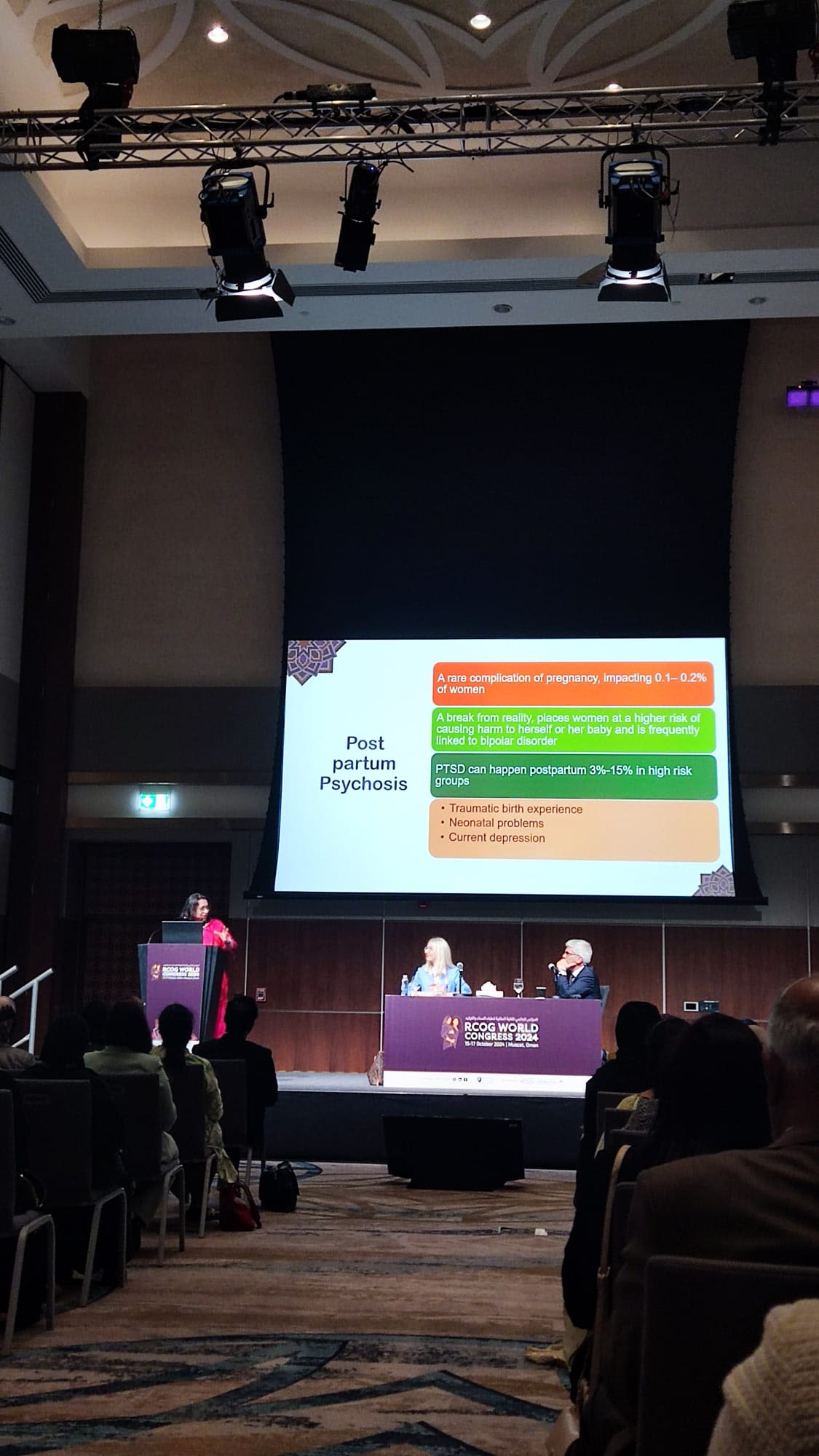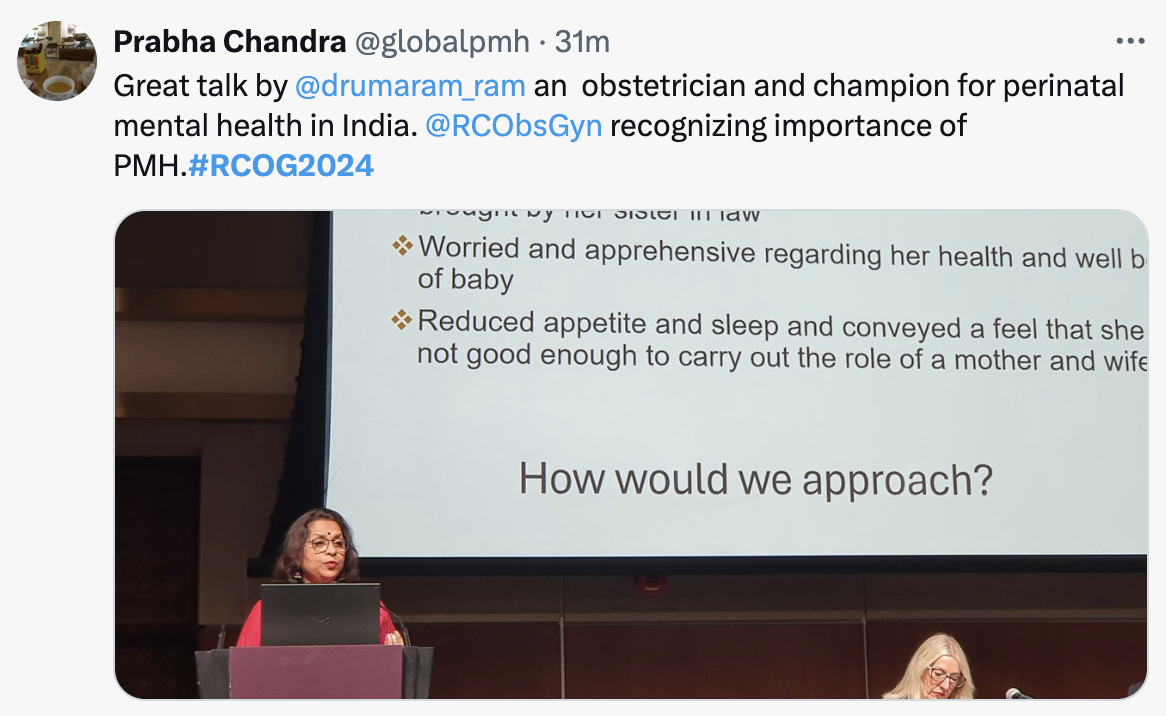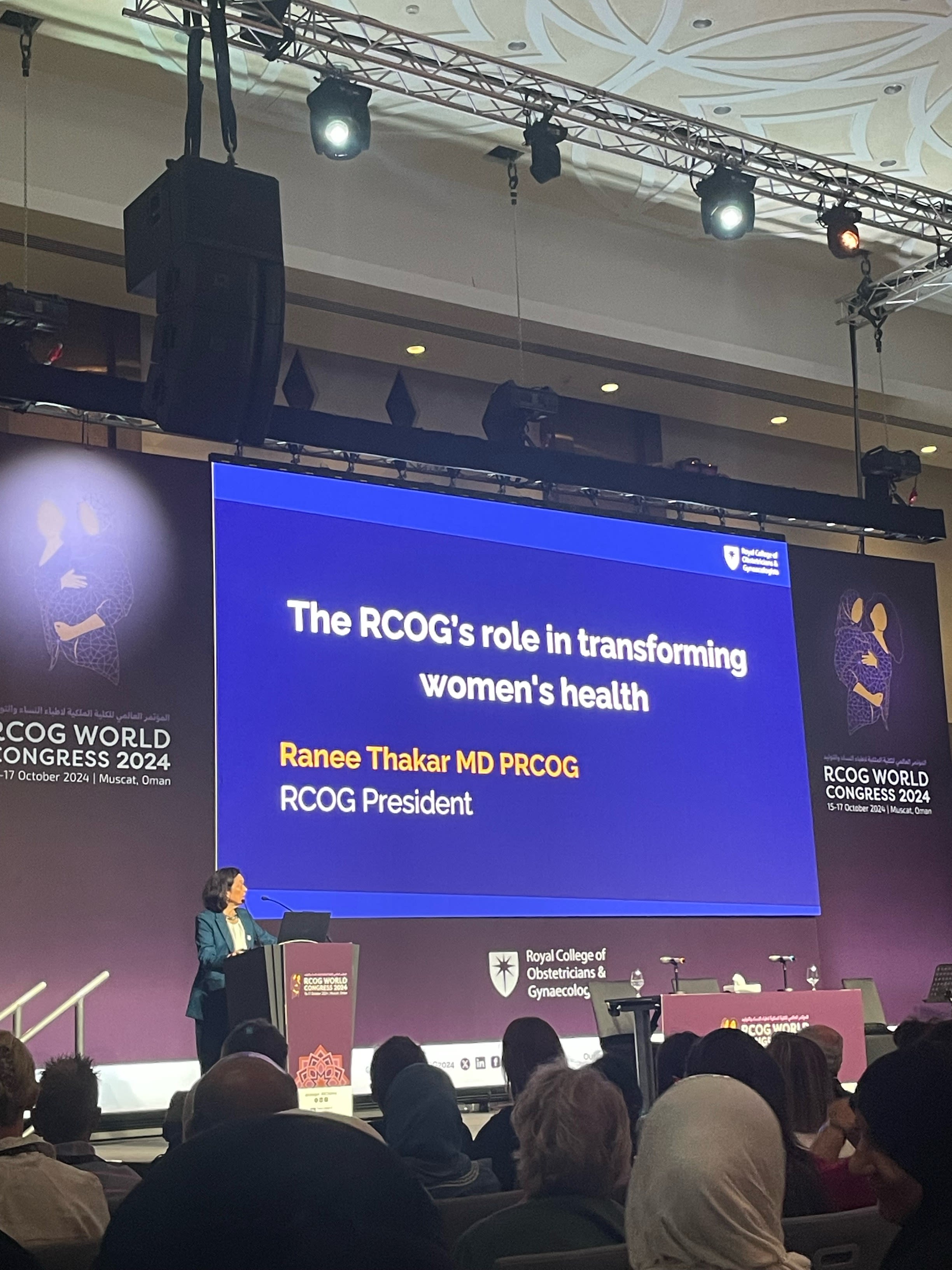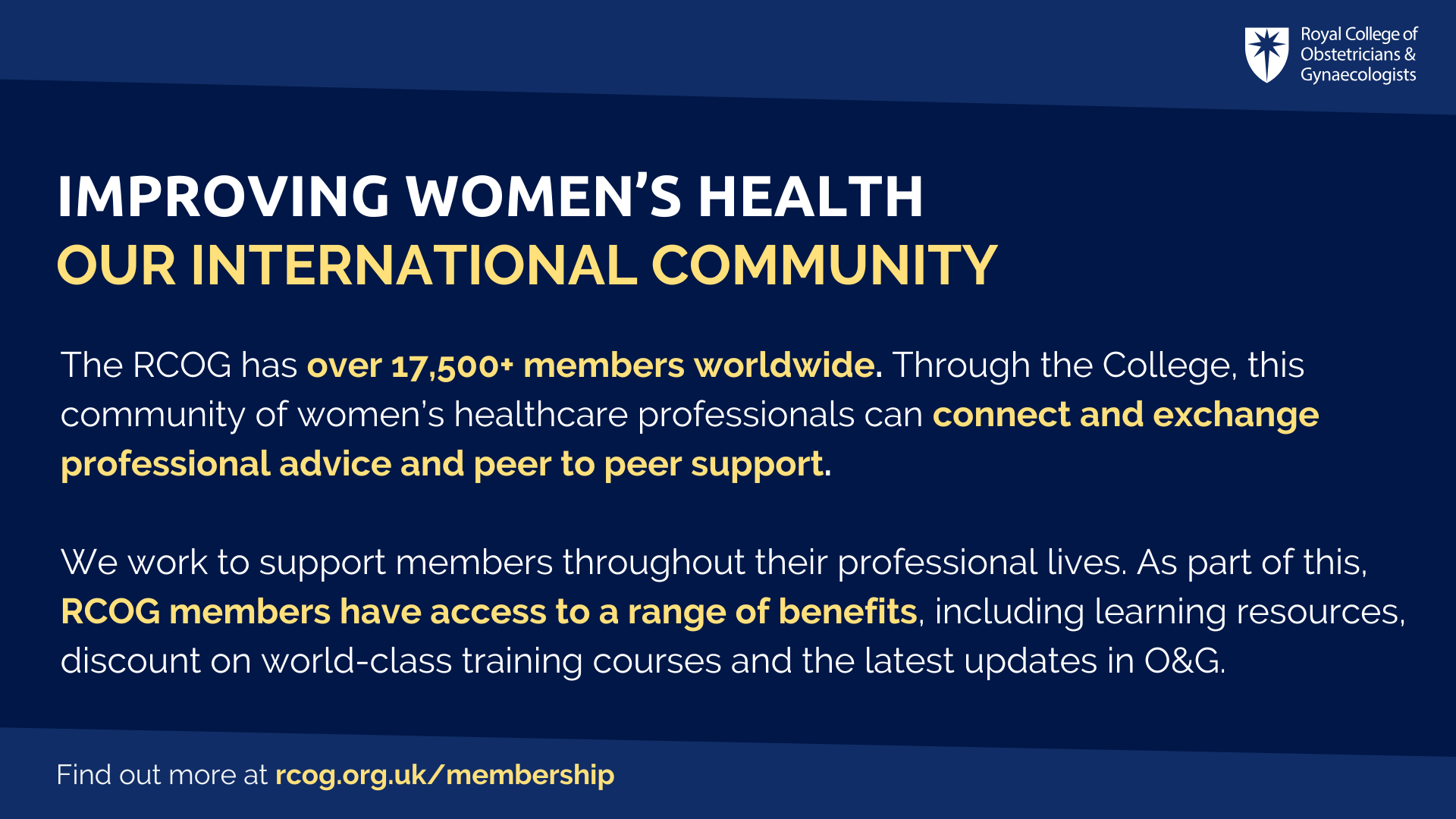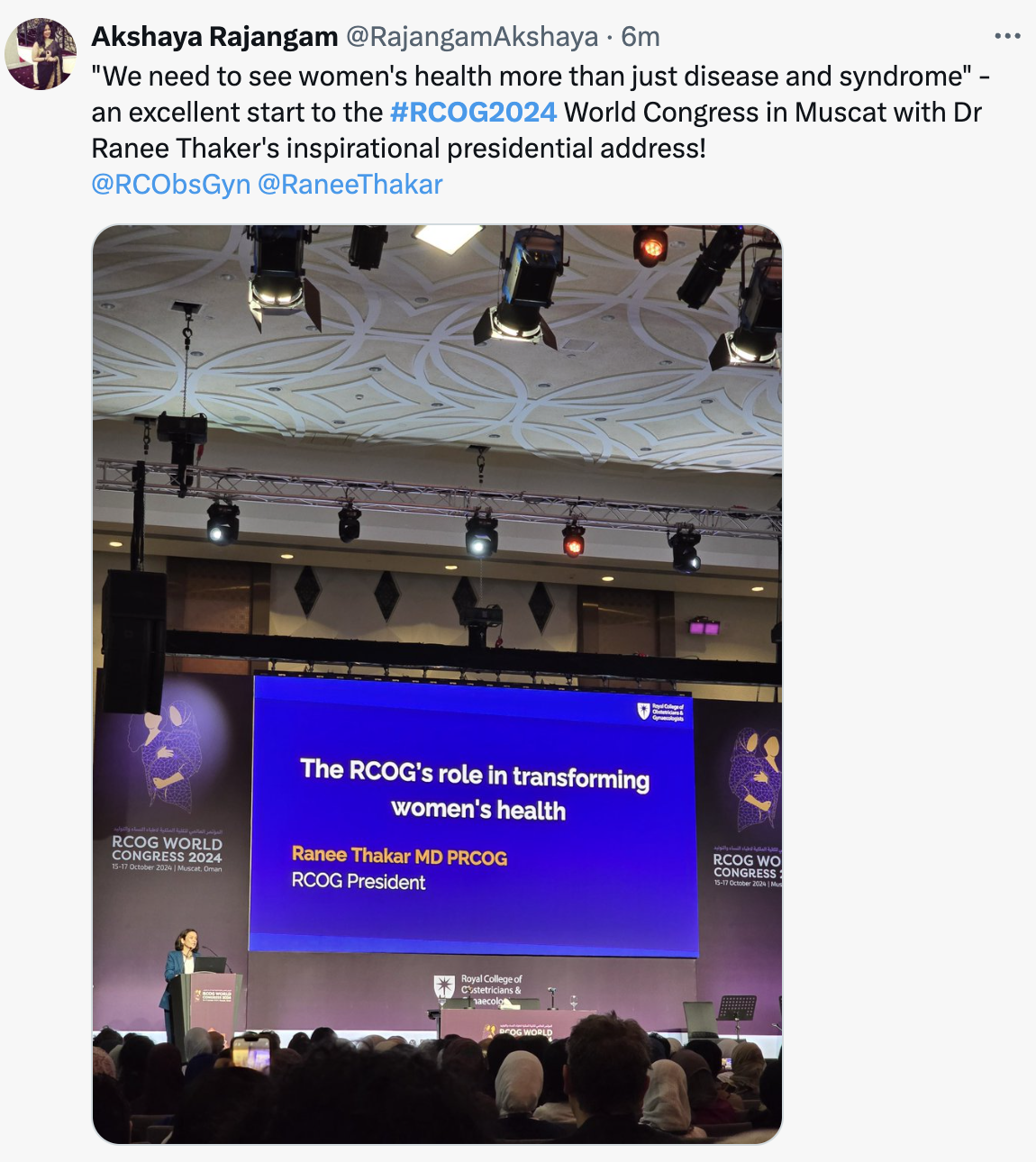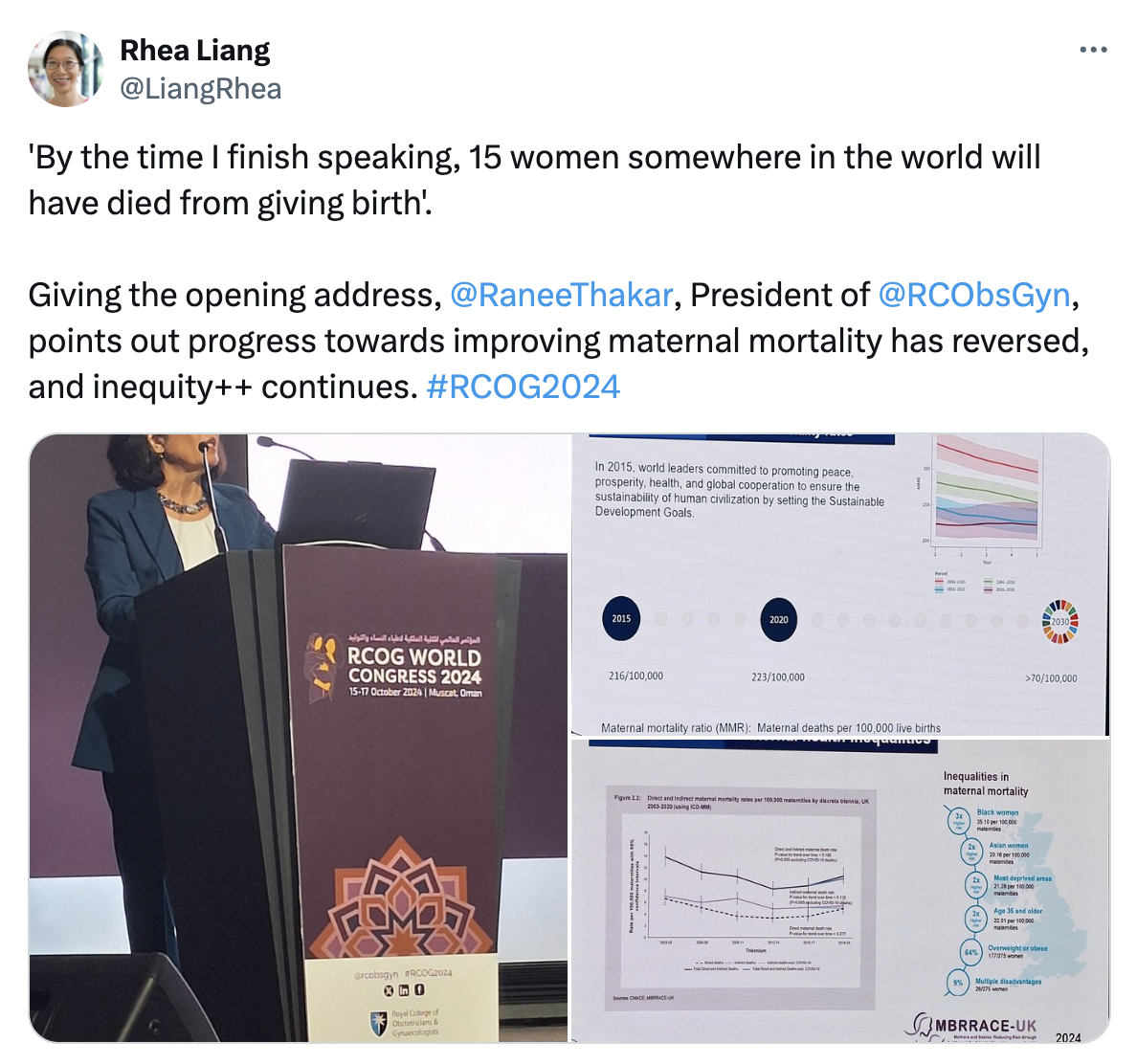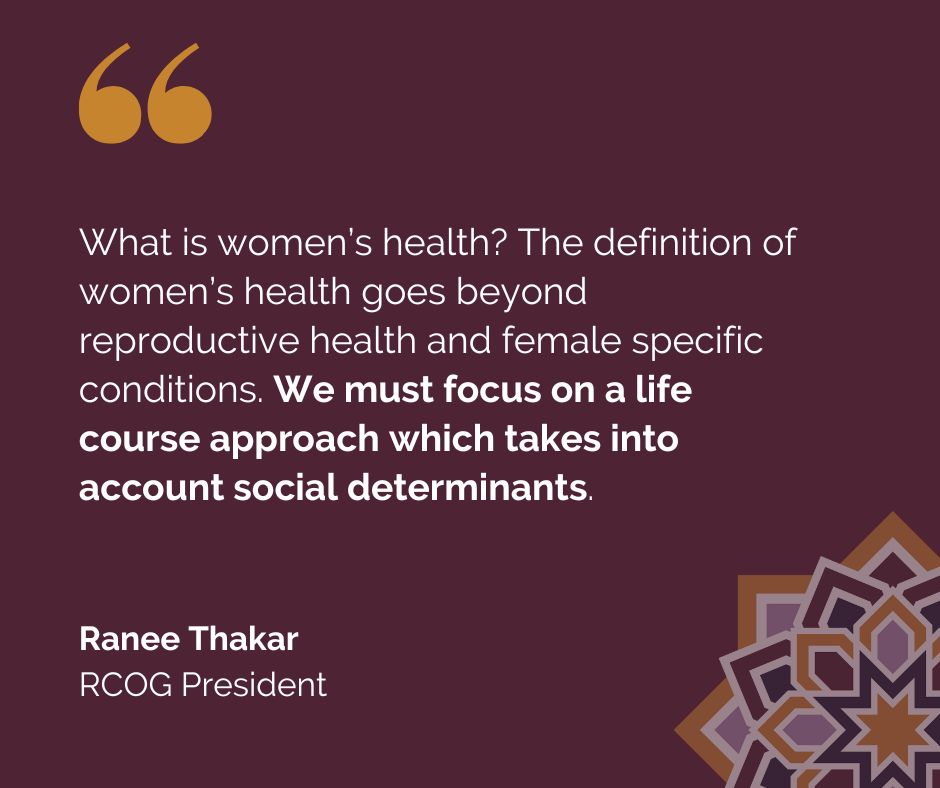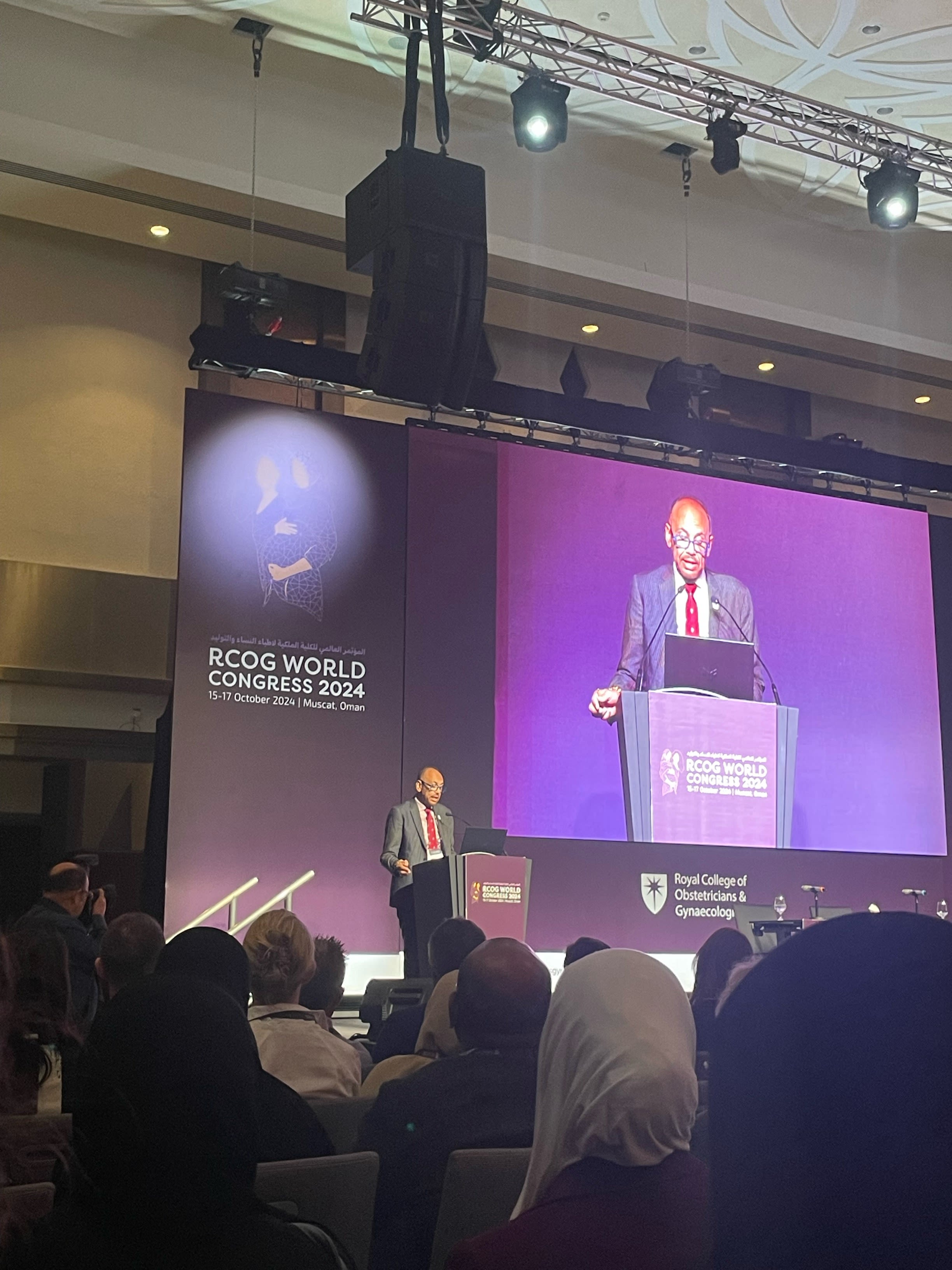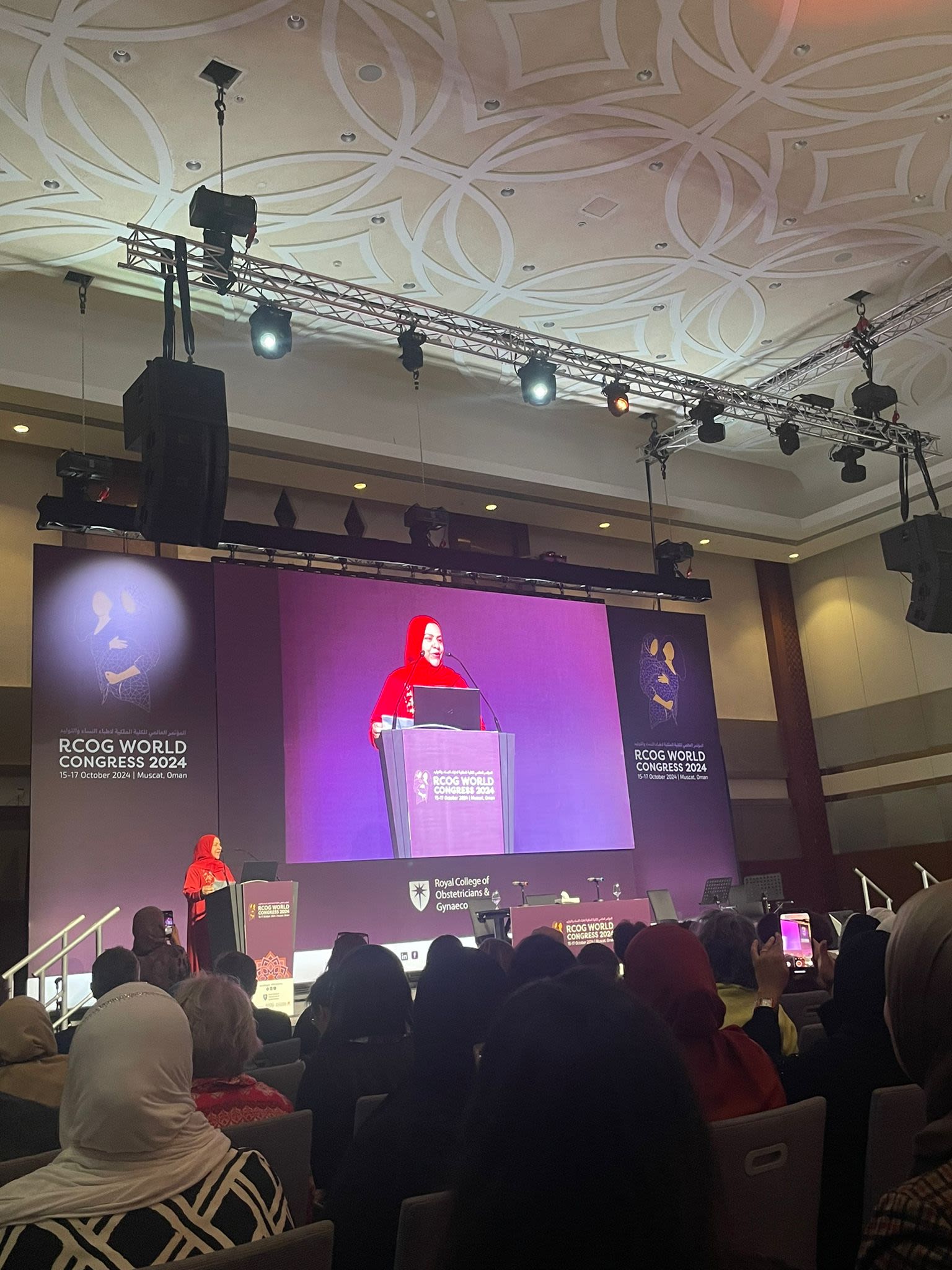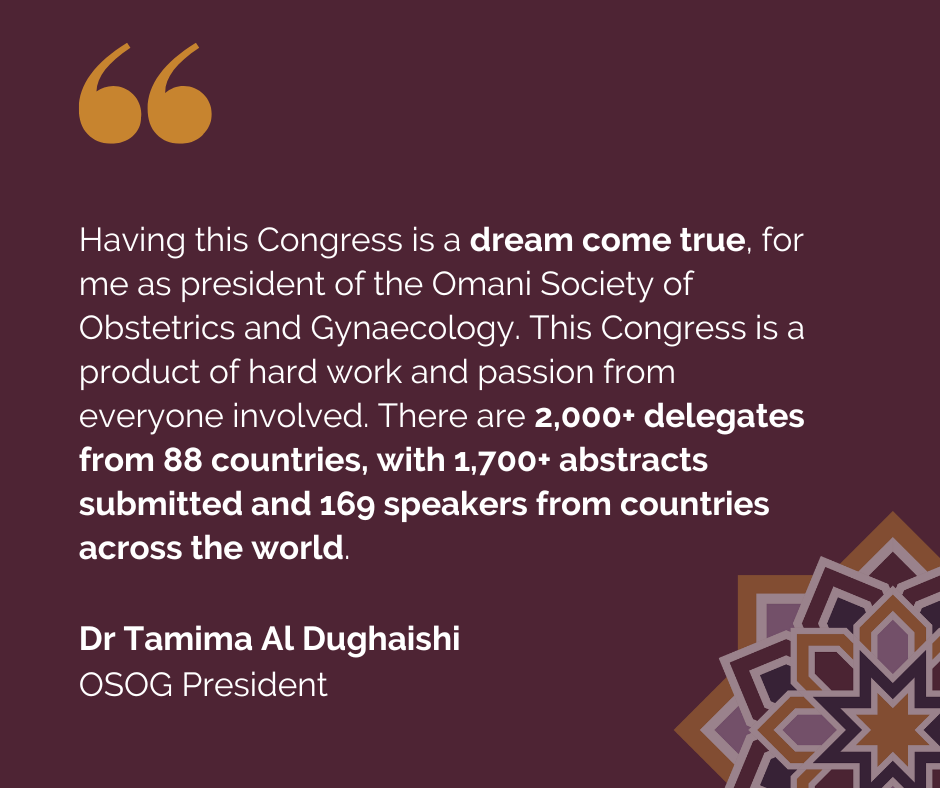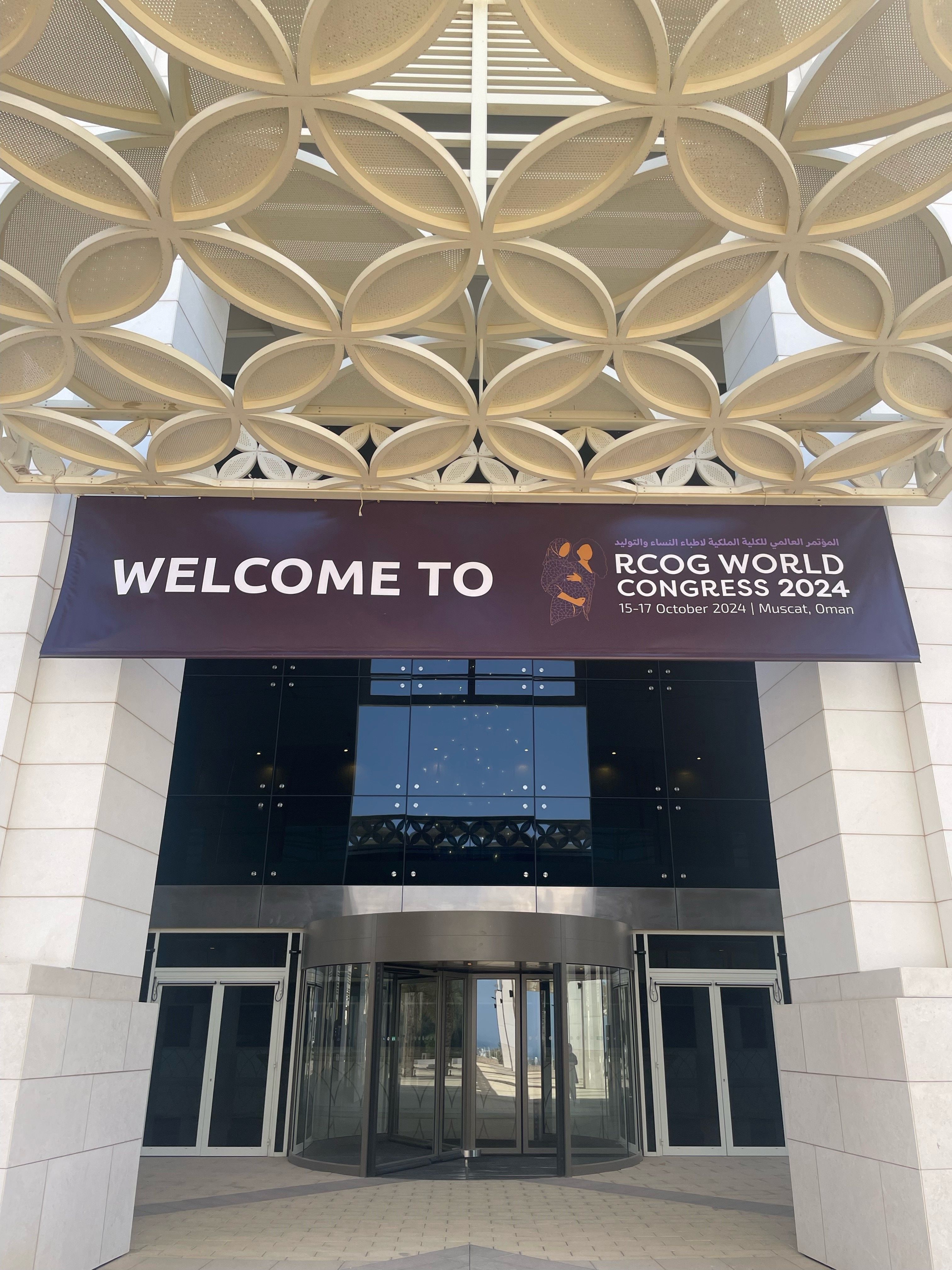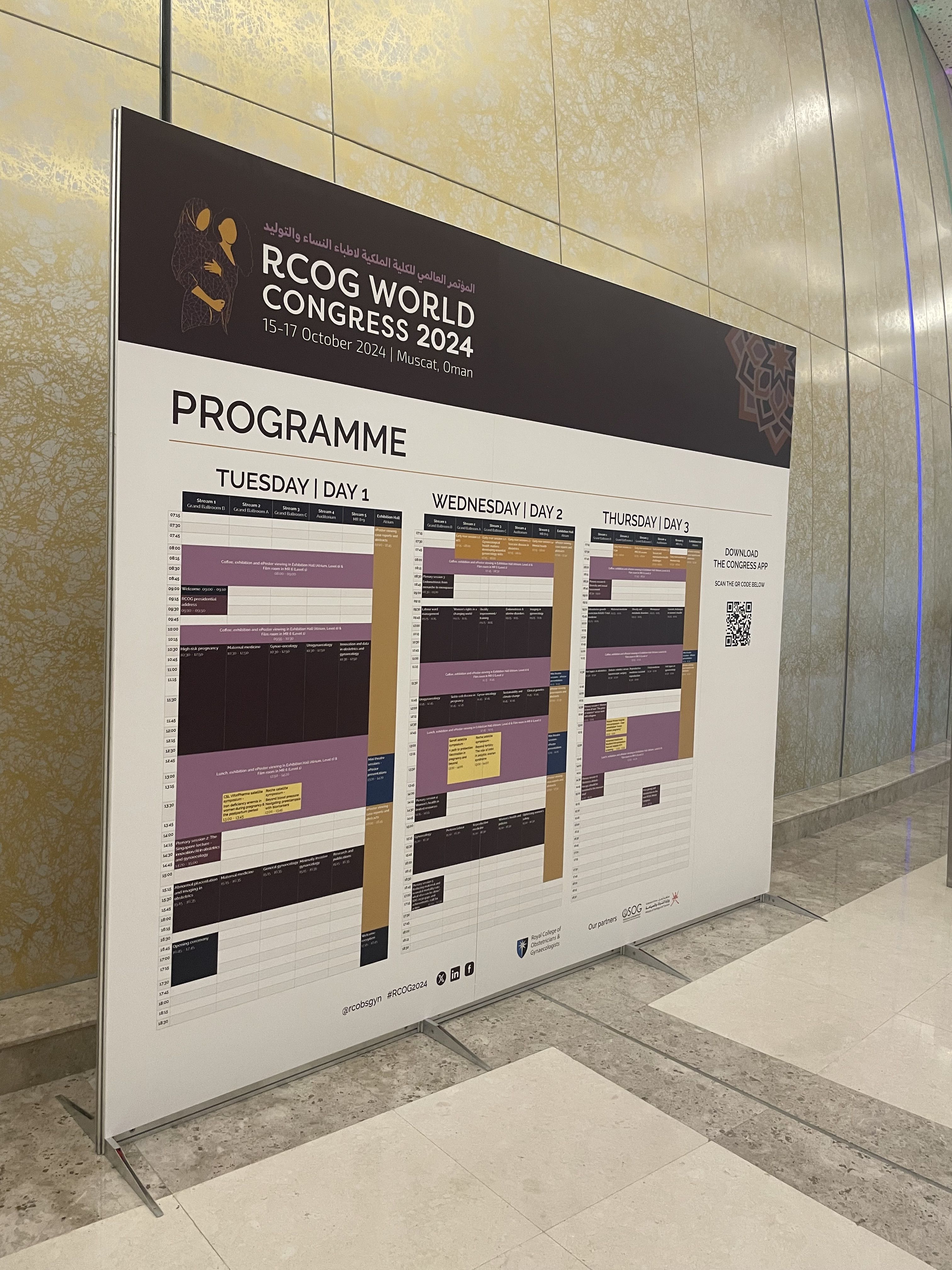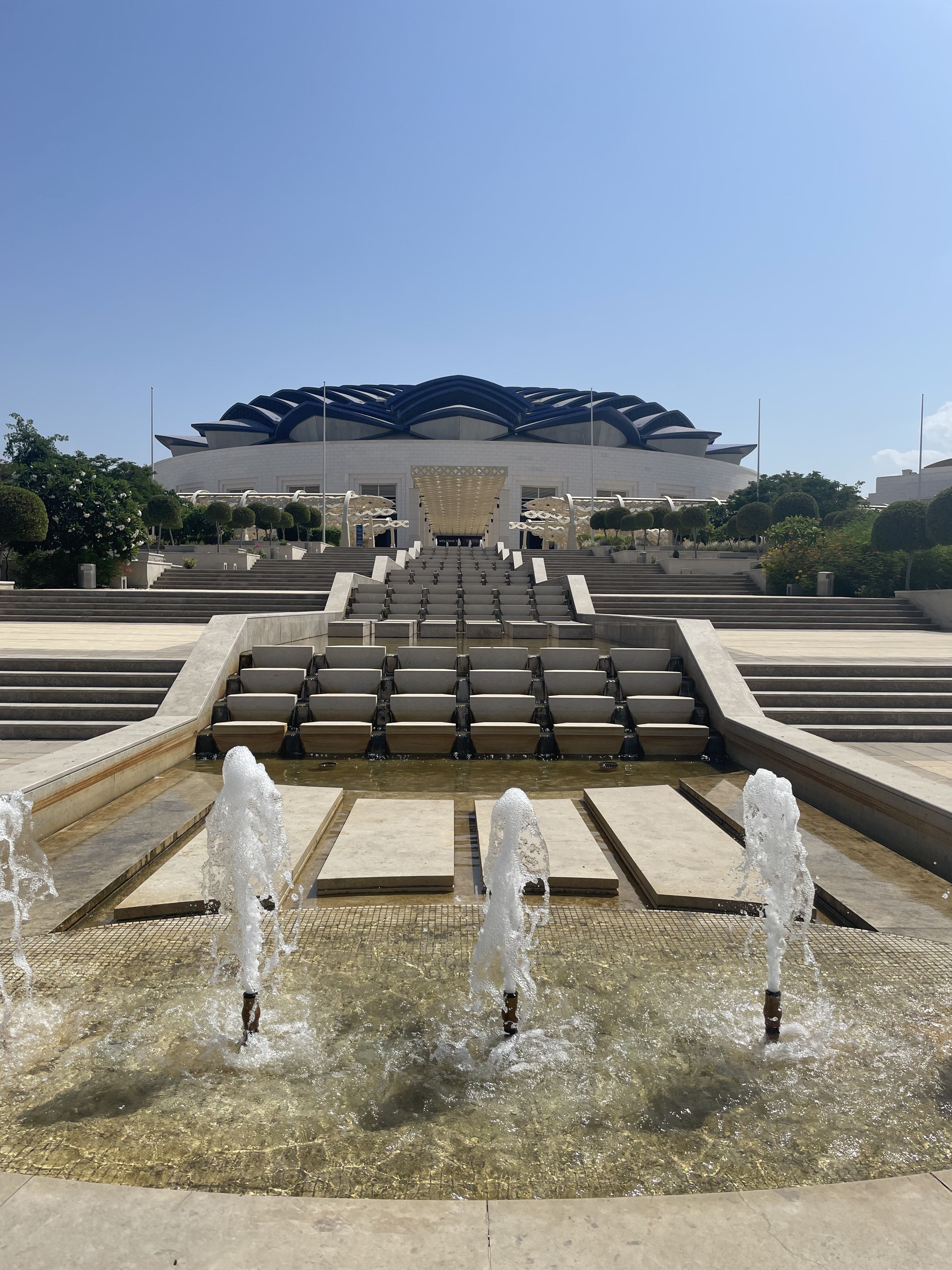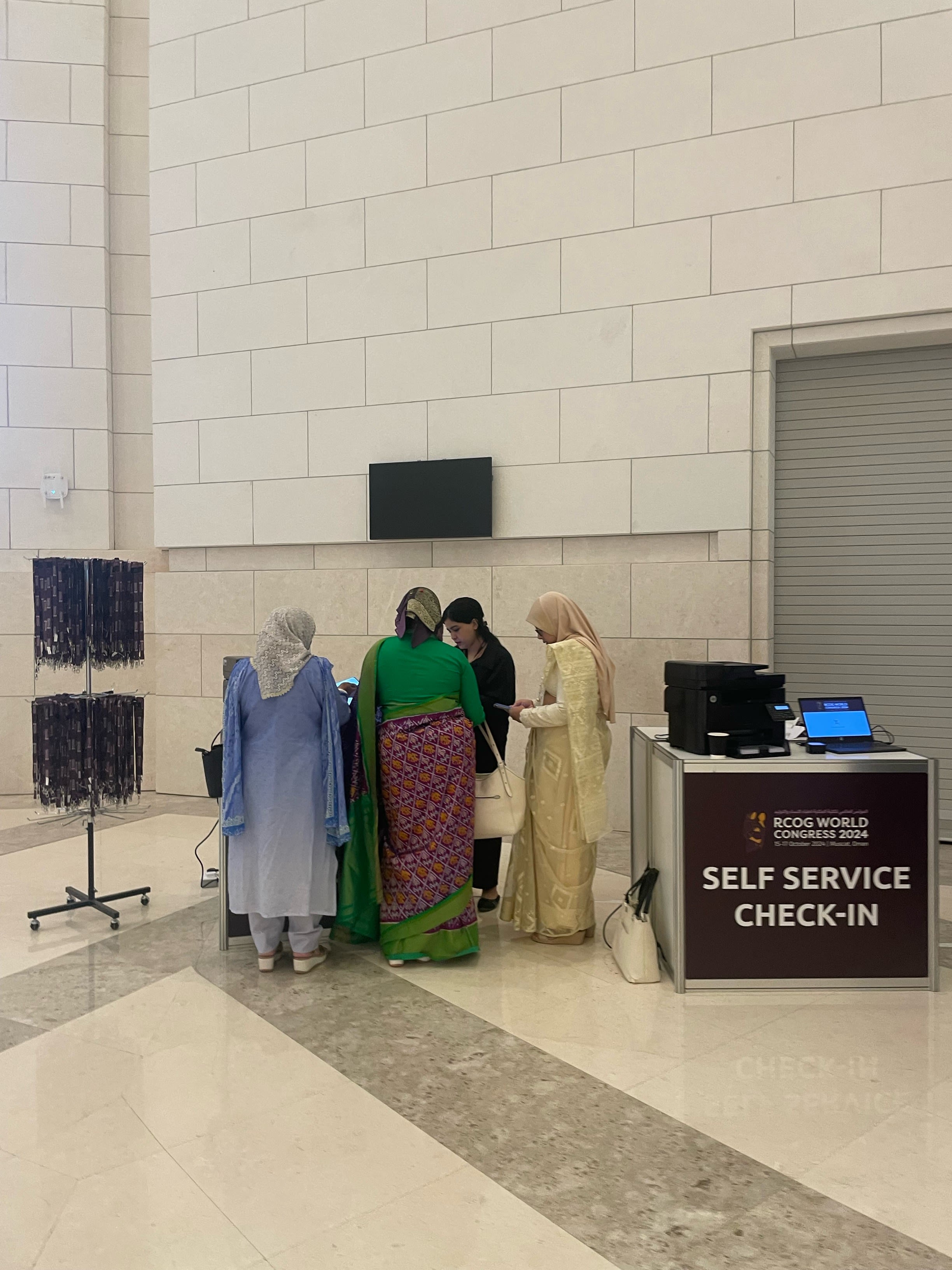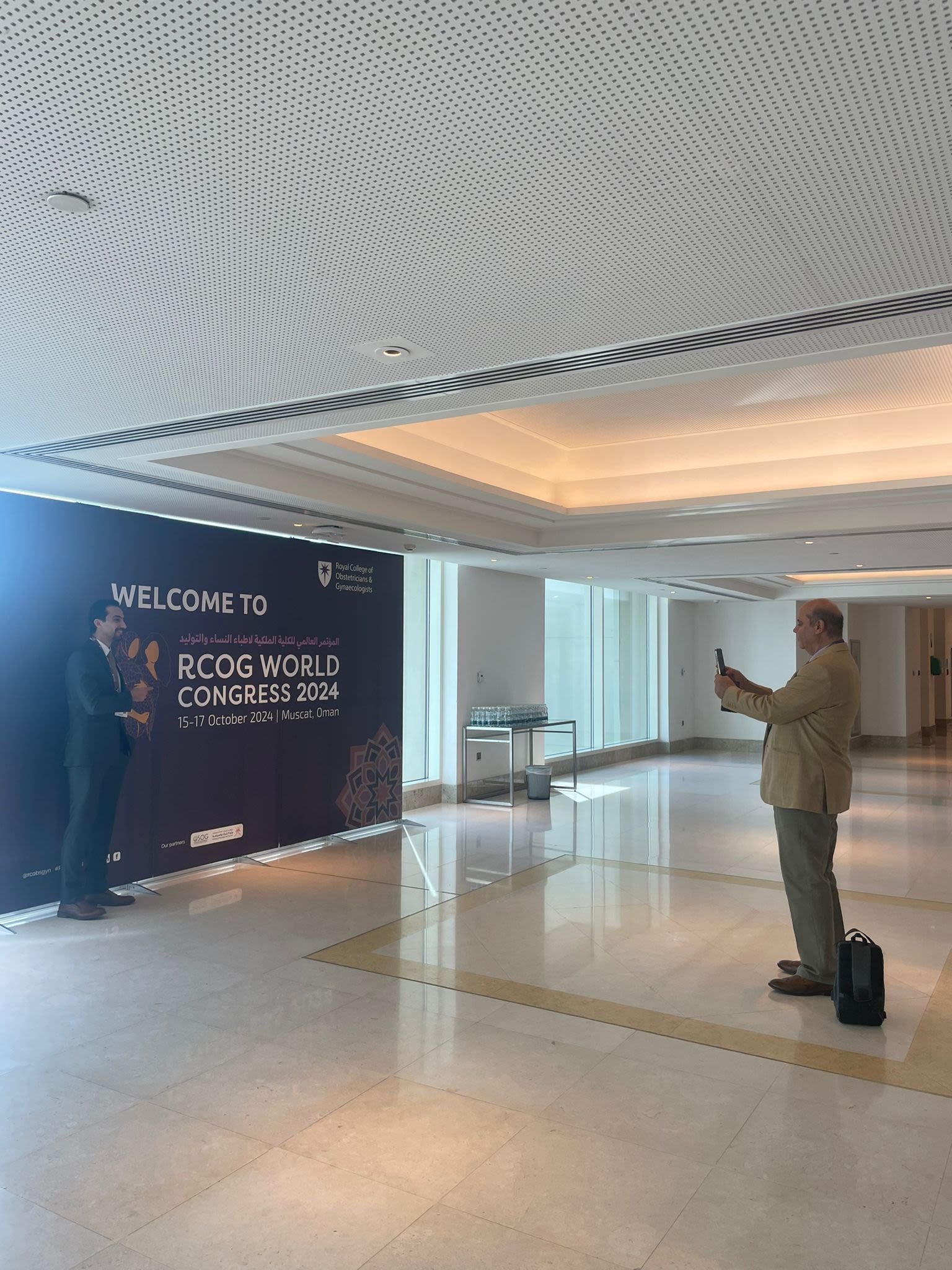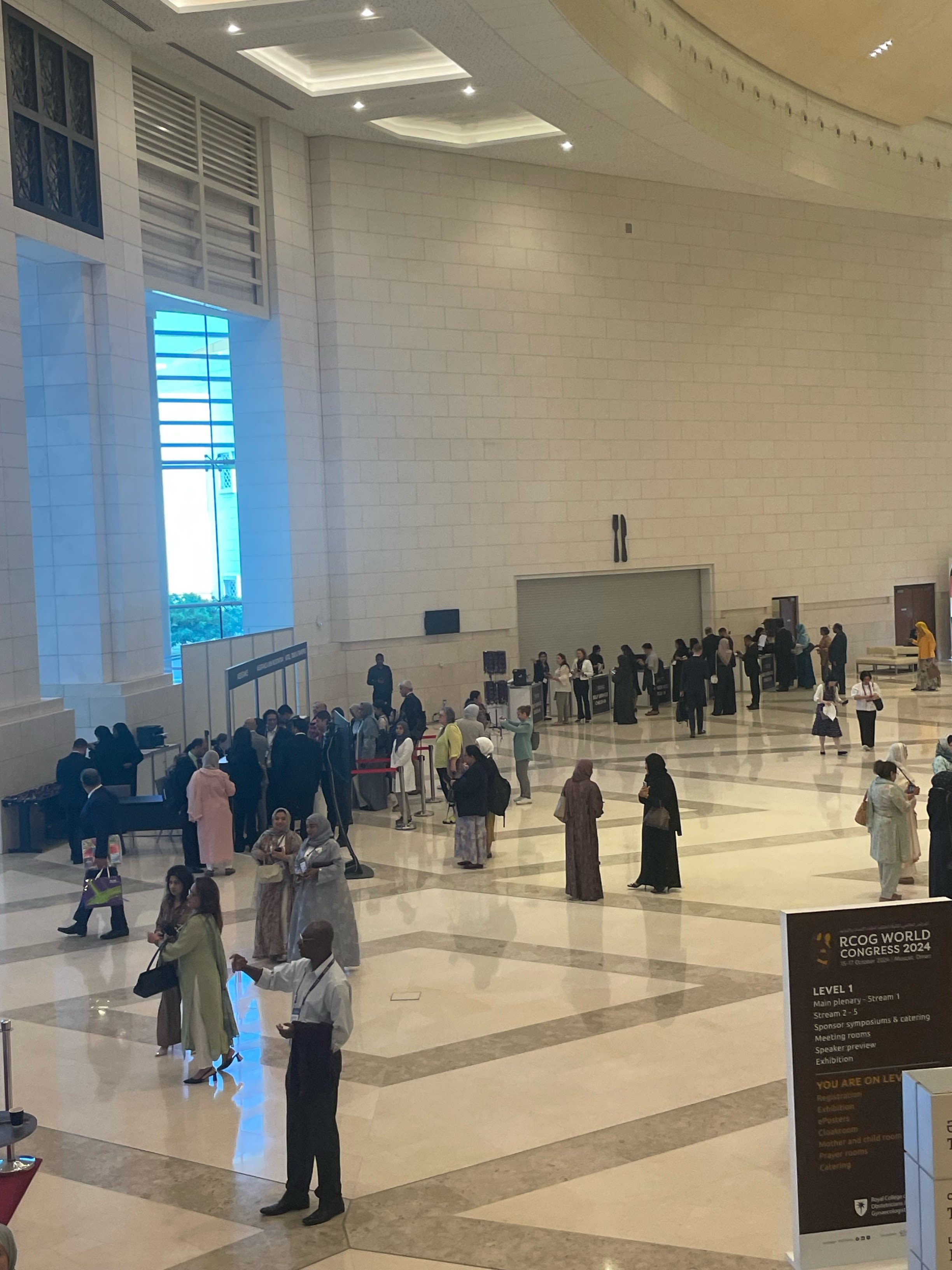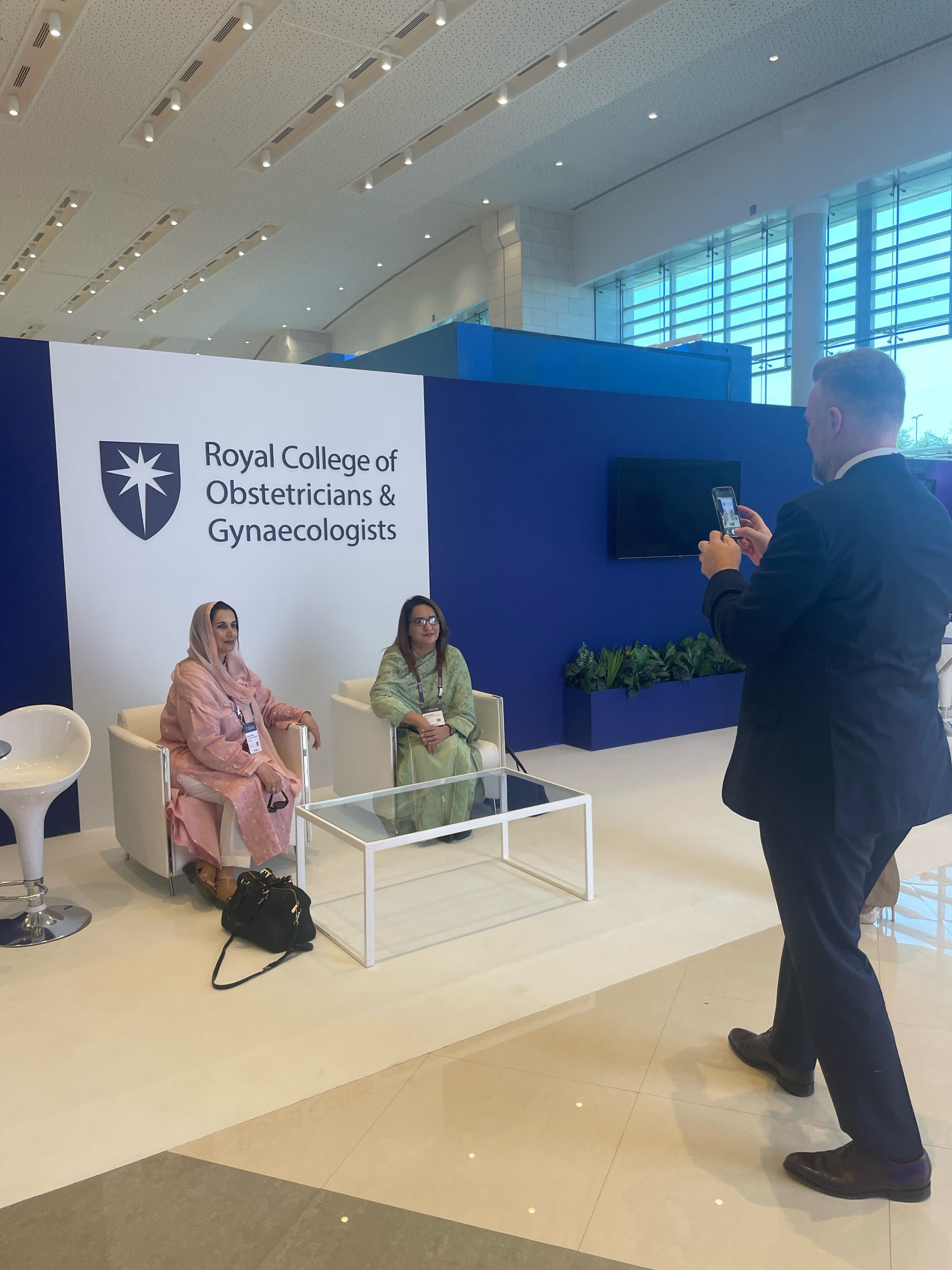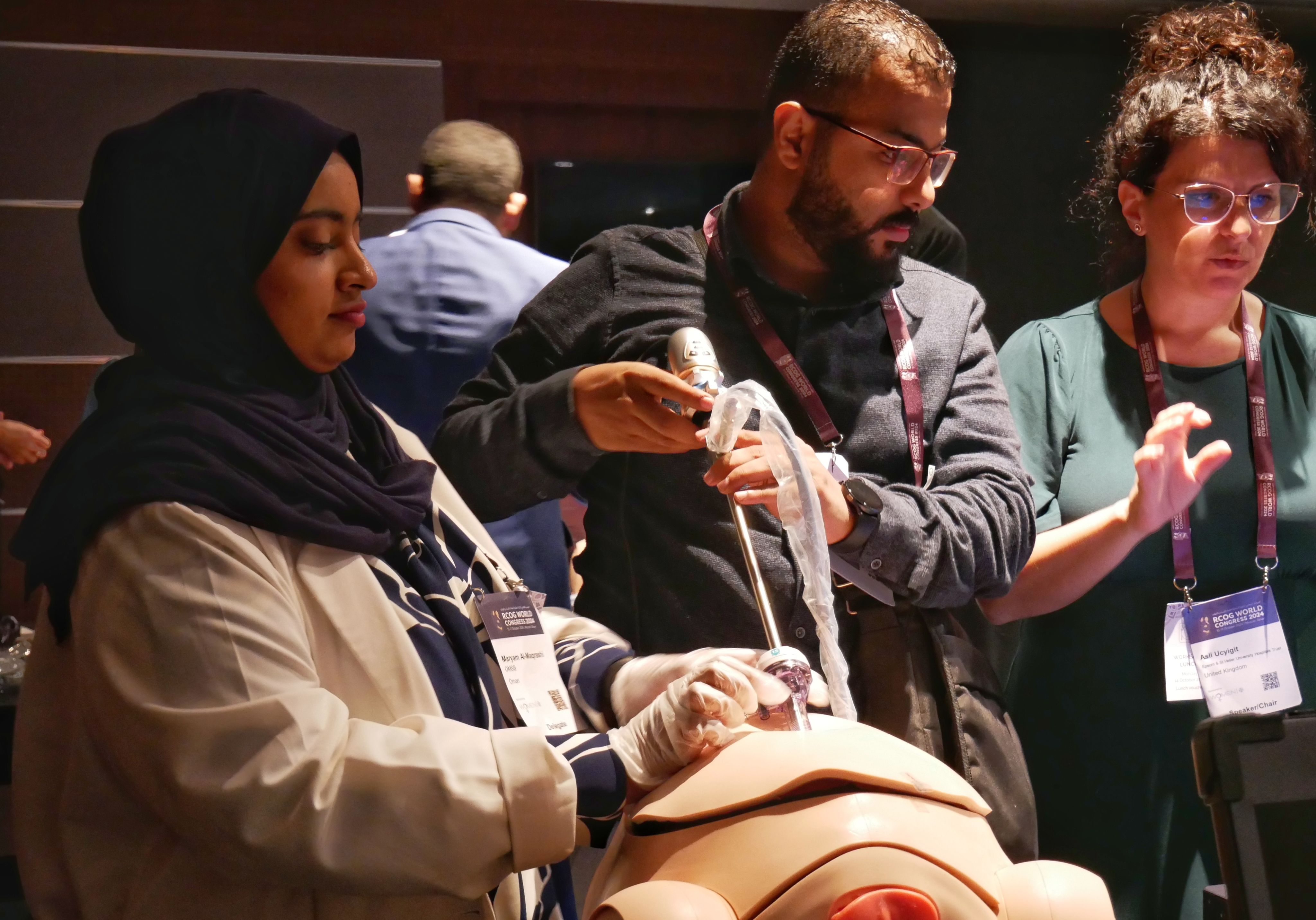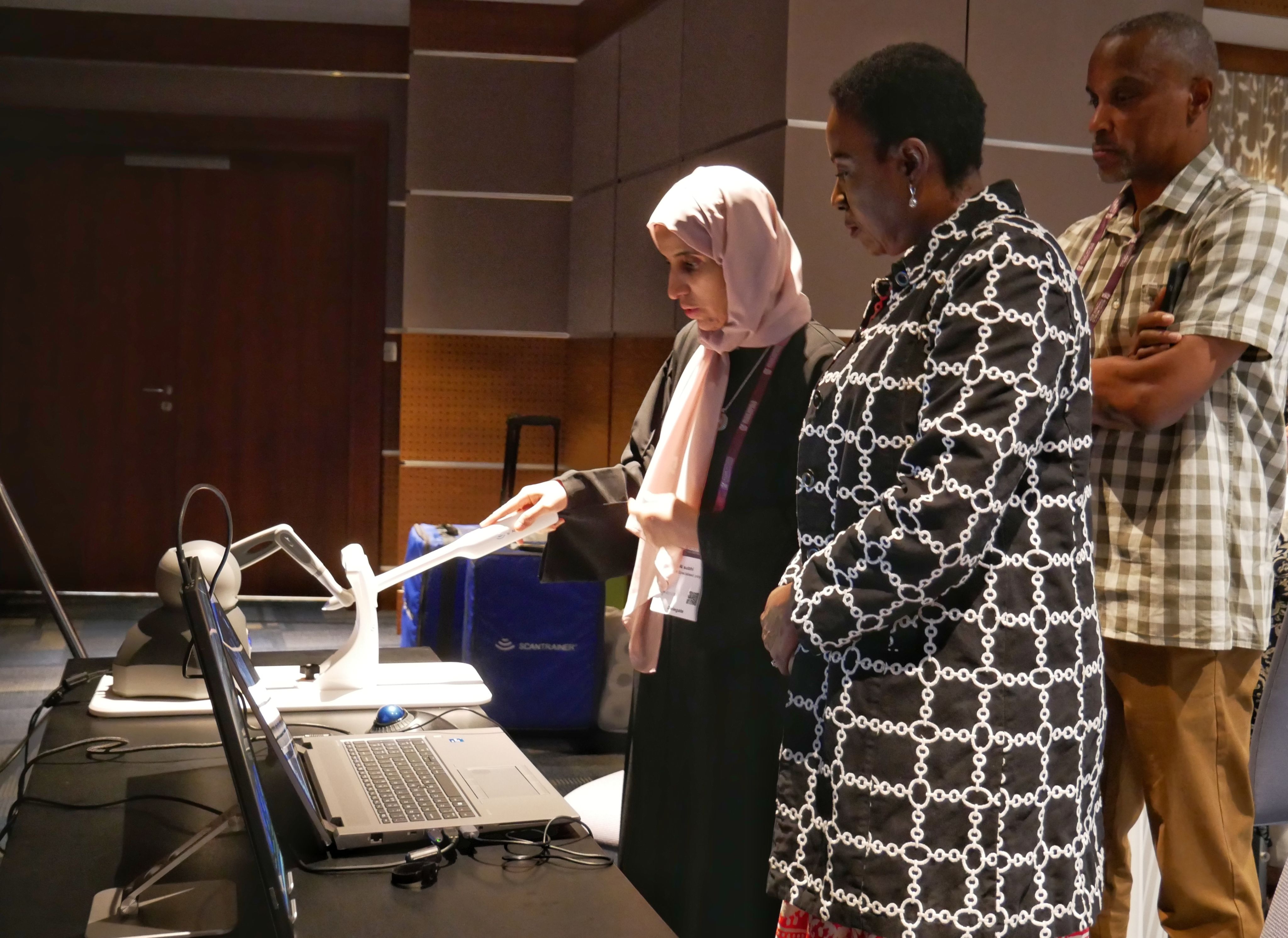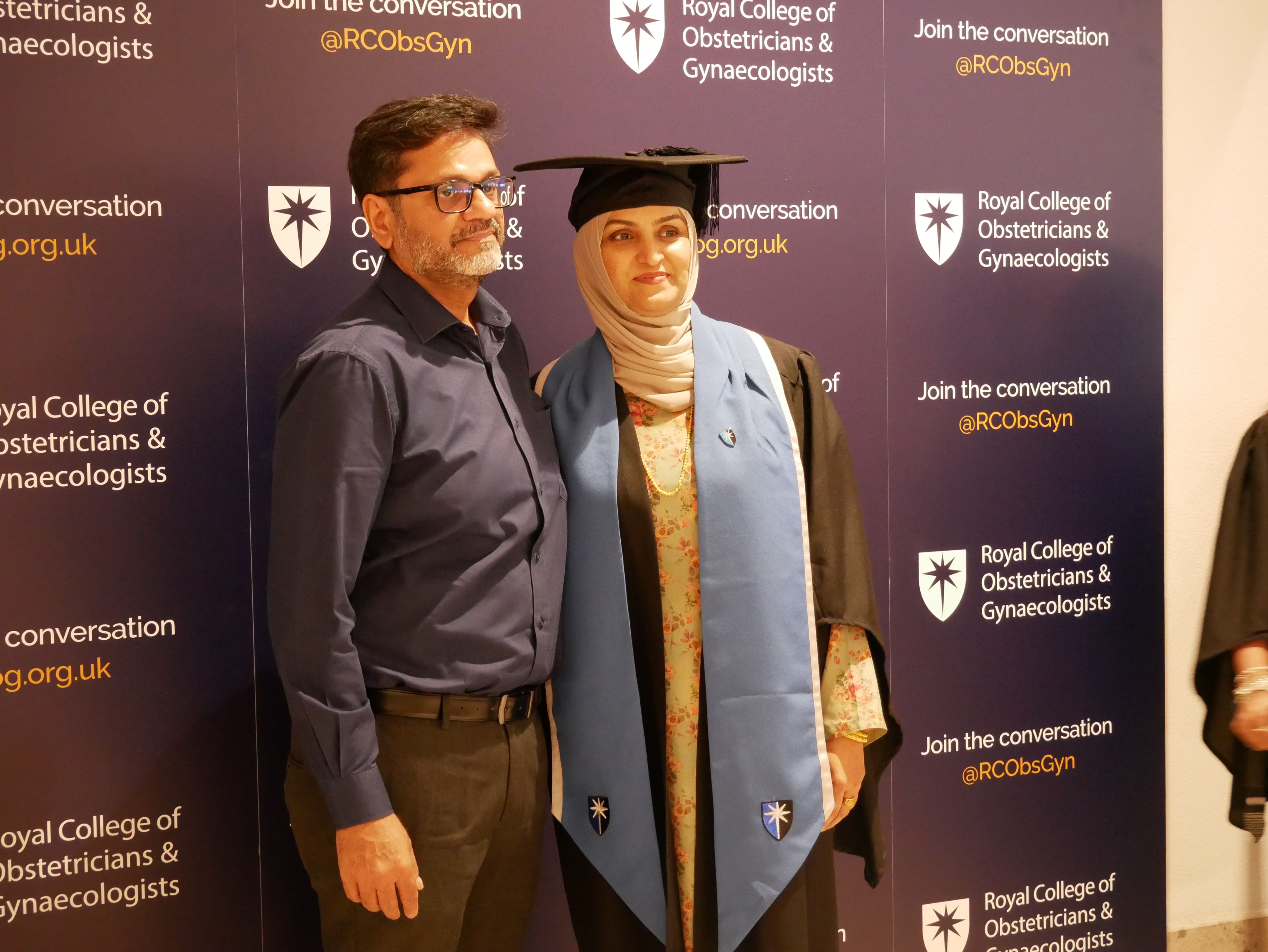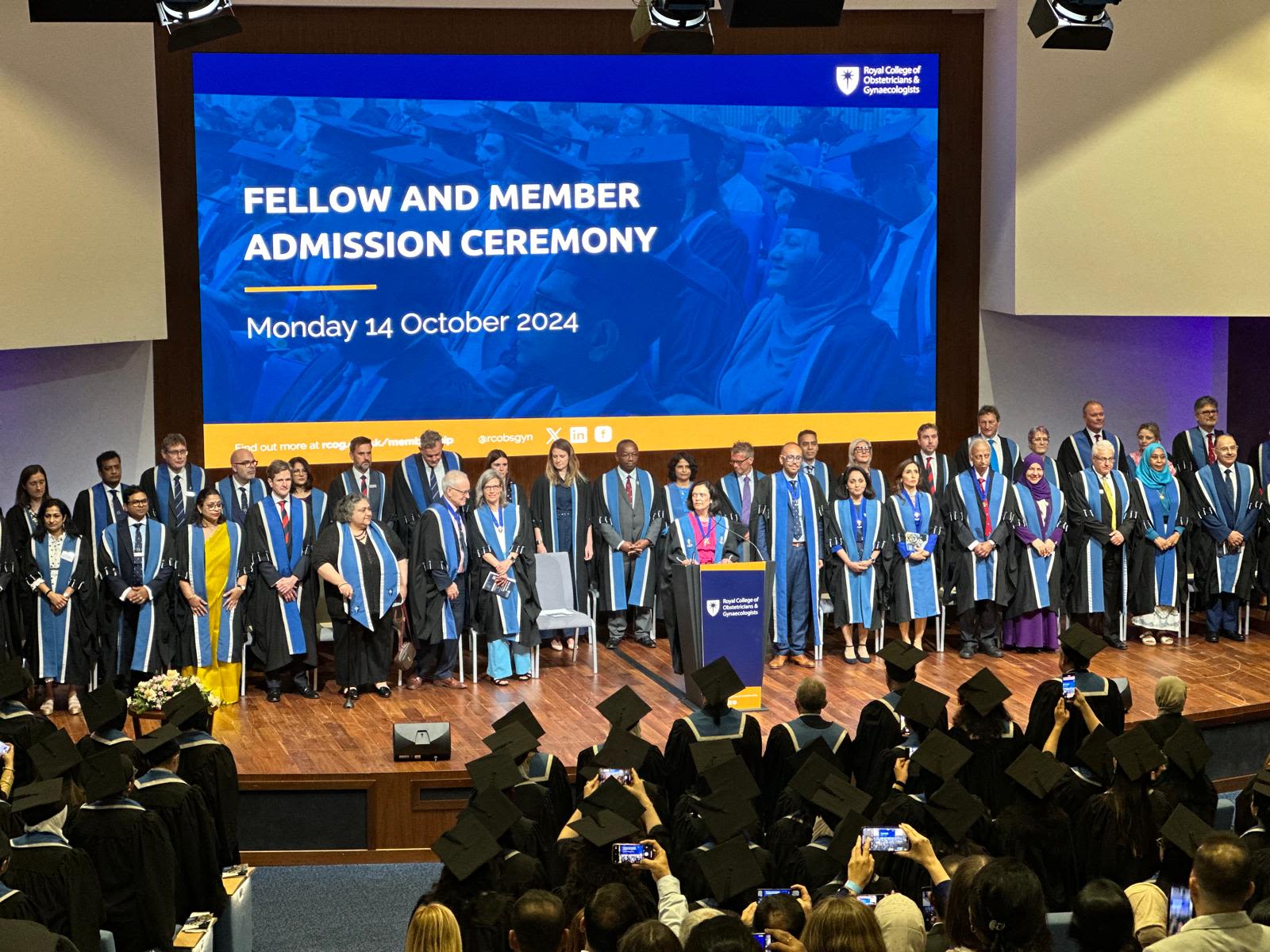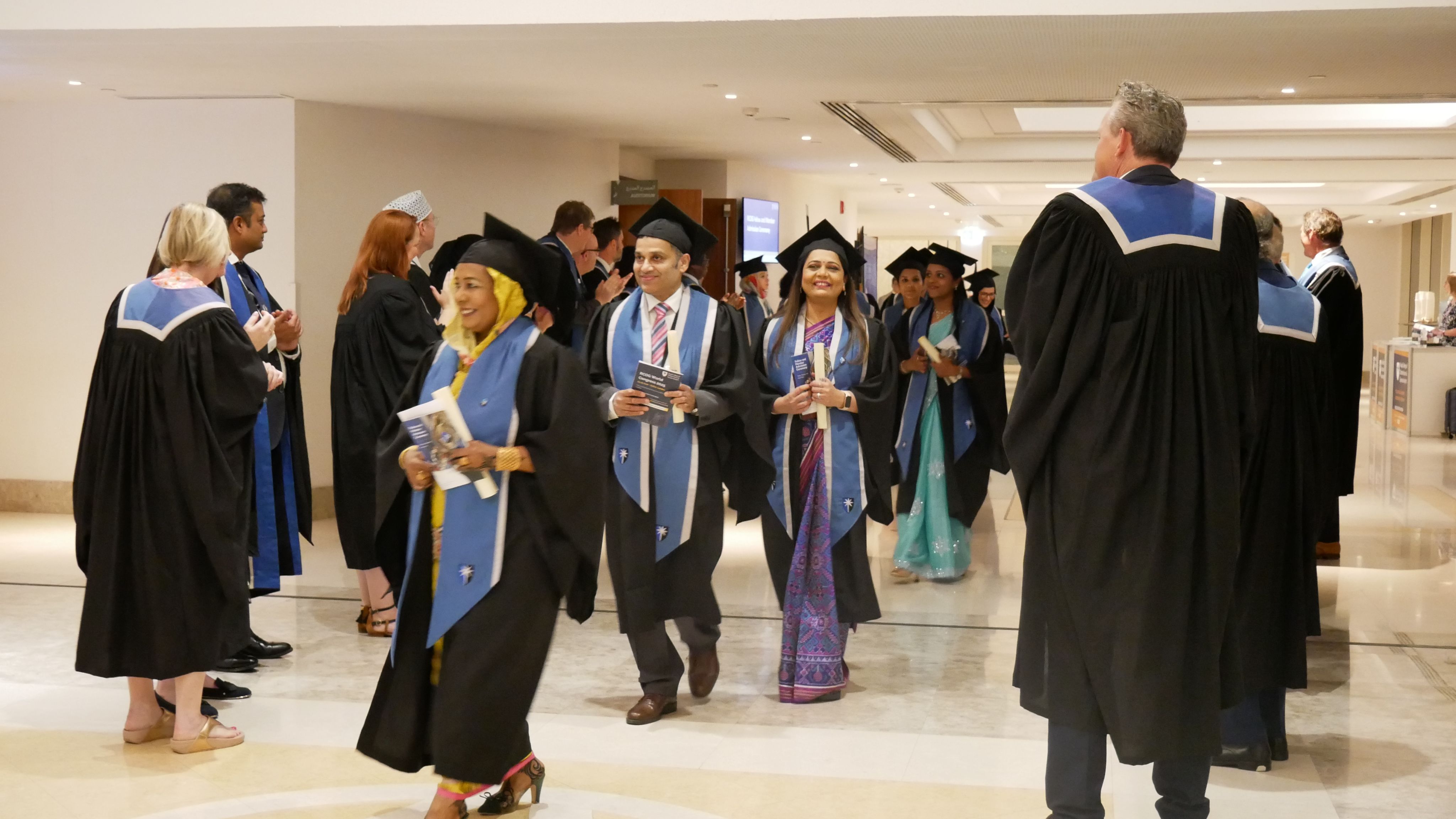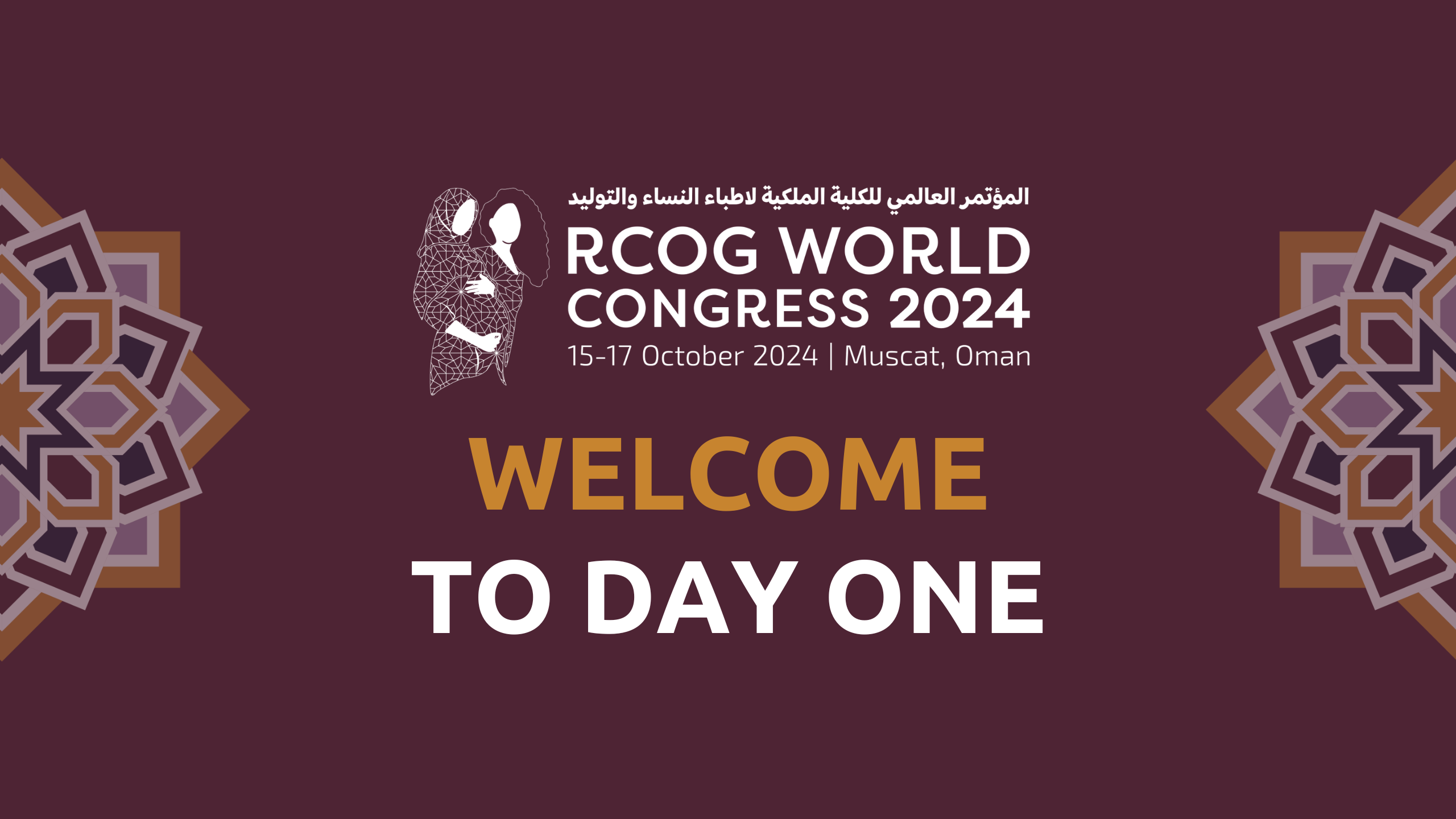
Refresh this page frequently to ensure you keep updated with the latest information.
Welcome to RCOG World Congress 2024!
Over the next three days, we will be sharing highlights from our flagship global event, taking place in Muscat, Oman.
Here on our live Congress blog, we will keep you up to date with ground-breaking talks, thought-provoking debates and innovation in research. We recommend having this blog open as a separate tab in your browser and refreshing the page throughout the day to receive the latest updates.
Don't forget to share your highlights from Congress on social media using #RCOG2024!
It’s been an inspiring first day at RCOG World Congress 2024, with speakers from across the world presenting the latest innovations and best practice in women’s healthcare.
Day one of RCOG World Congress 2024 is coming to a close with the opening ceremony.
RCOG Fellow professor Hassan Sallam will deliver an interesting talk on the legacy of Middle Eastern medicine. Profesor Sallam will recount the history of medicine in the Middle East, from its inception in ancient Egypt until the present day, and the various contributions of Middle Eastern physicians and surgeons to medicine, surgery and gynaecology over time.
Following a fascinating talk by associate professor Mahesh Choolani, the afternoon sessions are in full swing.
In stream 5 on research and publications, RCOG Council member Dr Sherif Abdel-Fattah is sharing his advice on how to get work published in scientific journals.
RCOG World Congress is an excellent opportunity to have your work published, with the top abstracts appearing in a special online BJOG supplement.
Why not submit your abstract for RCOG World Congress 2025 for the opportunity to be selected? Submissions are open now until Monday 20 January 2025. Find out more here.
After the lunch break, associate professor Mahesh Choolani from the National University of Singapore is delivering a keynote talk on how artificial intelligence is revolutionising O&G, by augmenting, not supplanting, medical expertise.
He is talking about the transformative impact of AI on diagnostics and treatments, highlighting its role in reducing errors and enhancing patient care, as well as addressing the ethical considerations crucial for the responsible use of AI in healthcare.
AI in O&G employs predictive analytics, virtual assistants, and machine learning, enhancing diagnostics and treatments, thus reducing errors, costs, and hospitalisations while ensuring quality-driven care. Large Language Models like ChatGPT speed up learning for healthcare professionals and students. However, responsible deployment of AI necessitates addressing ethical concerns. It is accomplished through open discourse to formulate guidelines ensuring patient safety and ethical practice in the AI-driven healthcare era.
As RCOG President Ranee Thakar highlighted in her keynote speech this morning, there are many challenges facing women’s health in which the College plays an active role.
For example, the College works to influence government policy and the political debate around women’s health. This includes advocating for a life-course approach to women’s health, our project to address long waiting times for gynaecology services in the UK and our calls for government reinvestment in global sexual and reproductive health rights. Find out more here.
After a busy morning, our delegates and speakers are now taking a break for lunch.
If you are in Oman, don’t forget to visit the exhibition, ePoster presentations or lunchtime symposiums. You can also visit the RCOG stand to find out more about the College and how we can support your professional development.
In Meeting Room 5, you will also find the film room with a rolling programme of short films covering important topics in women’s health including FGM, post-natal depression and HIV.
If you are just joining us, it's been a busy start to RCOG World Congress here in Muscat.
In RCOG President Ranee Thakar's opening address, she discussed the College's current priorities and future plans as we drive forward our mission to improve women’s health.
One area covered was the College's work on racism, discrimination, and inequalities. Read the latest President's blog to find out more.
She also reiterated the RCOG's solidarity with countries affected by conflict. Find out more here.
We also had welcomed our first abstract presentations
The morning sessions are now underway here in Oman, with talks covering the whole spectrum of O&G – from maternal medicine to urogynaecology, and innovation in data.
With RCOG World Congress 2024 underway, it’s been great to hear what our delegates have been enjoying:
If you’re with us in Oman, don’t forget to use the #RCOG2024 hashtag!
As well as content on high risk pregnancy and maternal medicine, many of our delegates are listening to the latest updates in gynaecological sub-specialties this morning.
In the urogynaecology stream, Mr Dudley Robinson, consultant urogynaecologist at Kings College Hospital, discussed the role of laser therapy in managing genitourinary symptoms of the menopause and stress urinary incontinence.
Back in the maternal medicine session, Catherine Williamson talked about strategies to improve the management of hyperemesis gravidarum (HG).
In summary, she said:
- HG is common and associated with adverse maternal and child outcomes
- The RCOG Green-top Guideline is comprehensive and up-to-date
- There is good safety data for anti-emetics
- Strategies to improve management include engaging and working with policy makers, implement current guidelines, improved education and invest in research
Access the RCOG Green-top Guideline on hyperemesis graidarum here.
Professor Asma Khalil, RCOG Vice President for Academia and Strategy, is kicking off the high risk pregnancy stream with a presentation on strategies to reduce stillbirth in twins versus singletons, a critical challenge in maternity care.
Asma is a renowned expert on twin pregnancies, with over 500 peer-reviewed publications. Find out more here.
In the maternal medicine stream, Dr Uma Ram is presenting her insights on perinatal mental health, having developed a perinatal mental health course for obstetricians in India. She shares her expertise in identifying and managing mental health issues during pregnancy and their impact on both mother and baby.
As well as being director and OBGYN lead at Seethapathy Clinic and Hospital in Chennai, Dr Ram is currently the All India Chair of the International Representative Committee of the RCOG for India, or the AICC. Find out about the work of our International Representative Committees.
RCOG President Ranee Thakar takes to the stage to deliver her presidential address, providing an update on the College’s recent achievements, current priorities and future plans as we drive forward our mission to improve women’s health.
The RCOG has over 17,500+ members worldwide. Through the College, this community of women’s healthcare professionals can connect and exchange professional advice and peer to peer support.
We work to support members throughout their professional lives. As part of this, RCOG members have access to a range of benefits, including learning resources, discounts on world-class training courses and the latest updates in O&G.
Ranee discussed the many challenges facing women’s health in which the College plays an active role. These include supporting the workforce, global maternal health, health disparities, reproductive health access, gynaecological health, violence and abuse and climate change.
Climate change
Ranee talked about ensuring the College delivers meaningful action and activity in response to the climate crisis as one of her top priorities as president. She discusses the ways the College is supporting our membership to provide more sustainable care, advocating for change with government and working to limit the College's contribution to the climate crisis.
Global maternal health
Over the past decades, steps have been taken towards improving maternal health. Progress has been made with reducing maternal mortality, maternal healthcare and family planning and other social determinants such as schooling and political participation
However, persistent challenges remain. Every day, approximately 800 women die from preventable causes related to pregnancy and childbirth – meaning that a woman dies around every two minutes.
An overwhelming 94% of all maternal deaths globally occur in low-resource settings, with three-quarters of maternal deaths caused by postpartum haemorrhage, hypertensive disorders such as pre-eclampsia/eclampsia, infections, unsafe abortion and other delivery-related complications. Nearly all of these can be prevented or treated with effective and timely clinical interventions.
The RCOG’s past training on essential and emergency obstetrics has focused on early warnings, timely intervention and respectful care for women, girls and those who are pregnant, during pregnancy and childbirth. The training, which has been rolled out in Uganda, gives multi-disciplinary teams in low-resource settings the tools to prevent or promptly treat emergencies, so women and their babies have the best chance of recovery. It also highlights the importance of communication, teamwork and referral. Assessment showed that referral documentation and communication had significantly improved at both health centre and district hospital level as a result of the training.
#RCOG2024 kicked off with a welcome address from Professor Hassan Shehata, RCOG Senior and Global Health Vice President, and Dr Tamima Al Dughaishi, founder of the Oman Society of Obstetrics and Gynaecology (OSOG).
A huge thank you to our partners, OSOG and the Omani Ministry of Heritage Tourism, for working with us on RCOG World Congress 2024.
RCOG World Congress 2024 is finally here! We’re delighted to welcome 2,000+ delegates from 80+ countries for a unique three-day programme.
Before the start of proceedings, eight pre-Congress workshops were hosted yesterday by RCOG President Ranee Thakar, Vice Presidents, Council Representatives and other experts in their fields. These engaging sessions are covering key topics across the specialty, including ultrasound and laparoscopic simulation, colposcopy and the repair of third and fourth degree obstetric tears.
After the workshops, we were delighted to hold a special admission ceremony in the afternoon. We celebrated over 60 new Fellows and Members, including 8 Honorary Fellows, marking a wonderful start to our time in Oman.
RCOG President Ranee Thakar talked about her own journey to RCOG membership, exactly 30 years on from receiving her own MRCOG certificate. She also discussed important ways our new members can get involved with the College, such as supporting the delivery of the MRCOG exams themselves.
